#female main character who does NOT end up with a guy?? whose arc is about defining her worth around her relationships with men and realizing
Explore tagged Tumblr posts
Text
nina salazar-roberts is such a beautiful case study in comphet and I genuinely think her arc deserves so more appreciation
#female main character who does NOT end up with a guy?? whose arc is about defining her worth around her relationships with men and realizing#she is so much more as a person outside of that#who loves and adores her friends and values every one of her friendships with them with the care and intensity of a romantic relationship??#whose self worth isnt tied to being The Best because she just wants to express herself for HER and make art with her friends#because she loves them and sees the beauty in making something with the people you love even if she isnt the star#and finds the balance between caring about her relationships and having an identity outside of them#of course the fandom hates her. yall can't stand any female character who has a personality outside of her love interest#people who call her bland or selfish or whatever annoy me so much. she's a TEENAGE GIRL figuring out who she wants to be jfc#and is just trying her best and cares so fucking much about the people around her#i love her so much and am so glad she exists as a main character#hsmtmts#nini salazar roberts#olivia rodrigo#also i think liv embodies so much of her in her music#all american bitch. scared of my guitar. enough for you#she's just such a relatable depiction of the messy teenage girl experience
46 notes
·
View notes
Text
Will Byers' Coming of Age Horror Story
Today I wanna predict Will's storyline in season 5 using horror genre tropes.
What's interesting about Will is that he often falls under tropes that are typically associated with female characters.
In season one he's the dead girl. He's Laura Palmer. He's the face of innocence that goes missing/dies and kicks off the story.
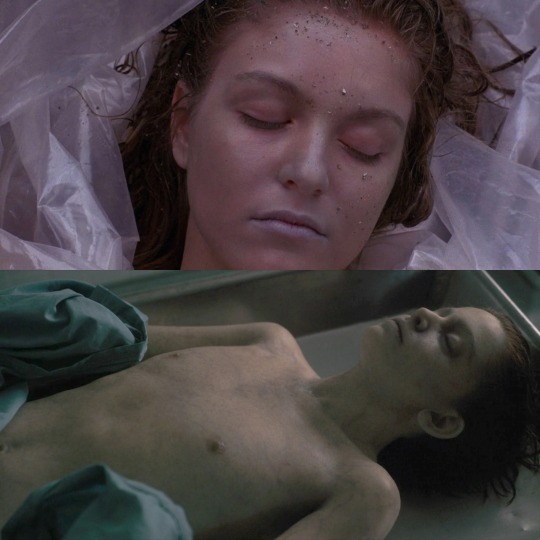
In season two, he's the possessed girl. He's Regan MacNeil. It's the irony of evil inside of the face of innocence.
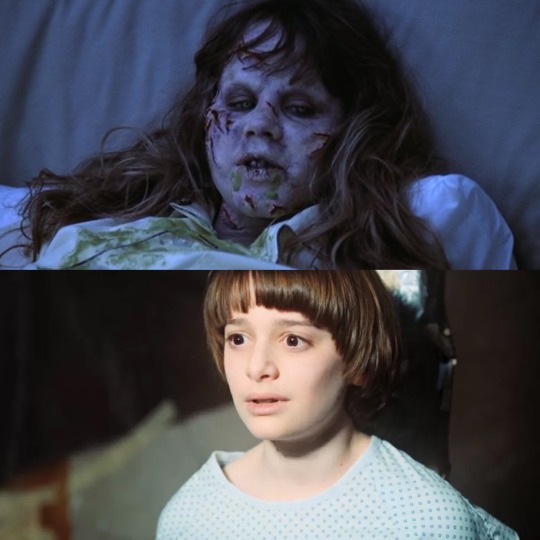
Now, in season three he isn't given as much attention, so pinpointing what kind of trope he follows is hard to do. However, with season four we are given insight into what that trope is. Season four is a little different because he actually takes on a teen drama/romcom trope instead of a horror one. He's the girl next door, he's Joey Potter from Dawson’s Creek.
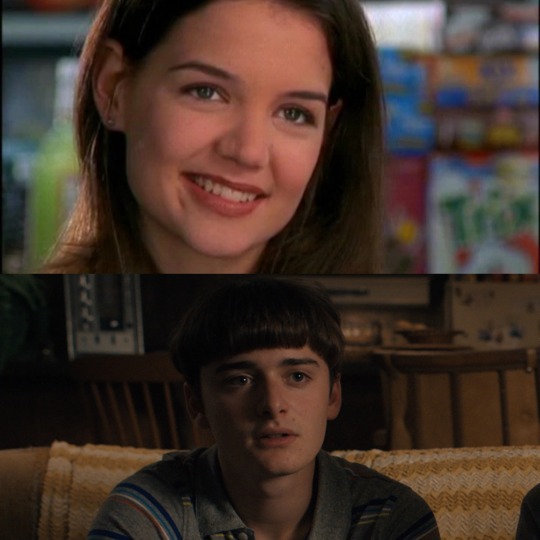
He's the childhood best friend who get's involved in the love triangle between the Main Guy and the Cool Girl. We see glimmers of this in season three, but it doesn't become especially clear that this is what they were going for until they lean into Will's feelings in season four.
So then, what does this mean for Will's arc moving forward? Will season five follow the pattern of female tropes? If so, which trope will they go with?
Some important information we are already given about season five is that this is going to be Will's coming of age. We've had this confirmed a few times by the Duffer Brothers.
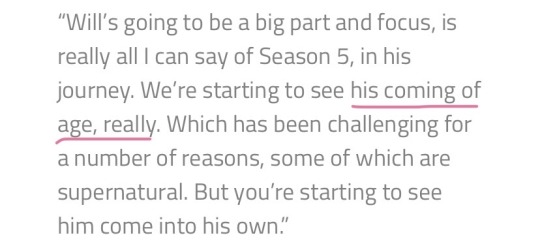
Given the nature of the show, it wouldn't be out there to assume that his coming of age is going to be explored through a supernatural element. In fact, supernatural coming of age horrors are actually pretty common, especially female supernatural coming of horrors.
These types of films typically explore coming of age through some kind of supernatural and/or horrific element, usually in quite the gruesome and violent way. While these films will explore a broad spectrum of different subject matter regarding coming of age, sexuality and sexual awakening is usually a point of discussion. Sexuality and either supernatural and/or horror elements run adjacent to each other, and sex is typically associated with violence. IE lycanthropy in Ginger Snaps, cannibalism in Raw, demonic possession in Jennifer's Body, Nina’s transformation in Black Swan etc.
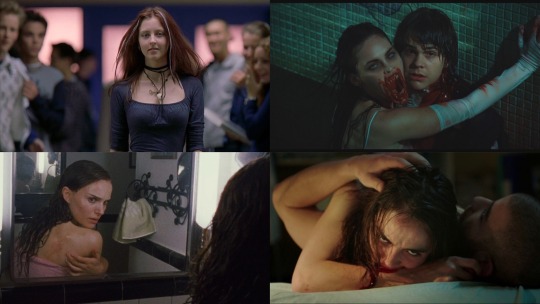
The reason for this is because female sexuality is usually demonized. It's seen as something as horrific and monstrous, and as such this trope is often associated with queerness. Films that follow this formula are typically seen as queer coded, or even include blatant queerness (see Jennifer's Body or Black Swan)
So now we have a character like Will, whose sexuality is already demonized in universe, going through his own coming of age narrative in a supernatural horror show.
What would be an effective and streamlined way to showcase coming of age and queerness in a way that also coincides with the nature of the show and even goes along with the lore?
I know that with the limited number of episodes, there comes the reasonable concern of being able to squeeze in so many different storylines and themes in such a short amount of time. I get it, it's my main problem with season 3. How are they going to find the time to adequately explore themes relating to Will's sexuality, while also having to wrap up all of the loose ends regarding the supernatural plot?
Easy, you do what the above examples did, and make Will's sexuality and his connection to the supernatural the same plot.
It's not like they would have to reinvent the story in order to do this, they've already been setting up clues for this exact storyline.
In season one, Will's rumors of Will's queerness is pretty widespread among the town, it's one of the suspected reasons for why he went missing. His queerness is already being correlated with supernatural from the very start.
As I've said before, coming of age horrors usually explore sexuality through of lens of something supernatural. It’s not that the supernatural plot takes the place of Will’s sexuality, but rather these two plotlines run together to aid each other, and the supernatural plot can express ideas relating to his sexuality in a more metaphorical way.
So then, how could Will’s burgeoning sexuality be explored in a supernatural way, that fits within the universe of the show?
His powers
@therainscene already has a great post discussing how Will’s powers are his queerness, I reccomend reading it because they explain a lot of the same points that I’m going to but in a much better way than I ever could. Although I wanna point out this point they make at the end—

I would go as far to say that this is what the show bas been building toward the entire time. Think about how many elements of Will’s storyline matches up with both his sexuality AND powers:
Being taken in season one (the town believed it was because of his sexuality, when really Vecna could have taken him for his powers)
Bullied by his peers (being called Zombie Boy for his experience in the UD and other slurs for his sexuality)
Powers/sexuality being seen as mental illness (his true sight visions being misinterpreted as flashbacks)
Repression of both powers and sexuality
Castration (Soteria effectively being a conversion tactic for powers)
Stigmatization (the town sees both the supernatural and homosexuality as satanic)
And finally, acceptance (neither Will’s powers nor his sexuality are horrific, but a beautiful thing to be embraced)
Here’s what Will’s storyline looks like written out:
Will is initially targeted for his sexuality/powers (season one) and he is to be judged by his peers for his sexuality/supernatural experience, and his sexuality/powers are thought of to be a mental illness (season two). His sexuality/powers remain repressed (season three) until they are slowly revealed to the audience (season four) and he finally accepts and embraces his sexuality/powers in the end (season five).
If we follow a typical storyline from a coming of age horror along with what we know about the show, here’s my rough prediction for Will’s s5 arc:
Post time skip, Will is beginning to come into his sexuality more and more but it’s difficult given the external environment
Will has an awakening of powers emblematic of his sexual awakening
Owens + the government tries to “cure” Will of his powers by getting rid of them (I’m going to make a post in the future elaborating more on just this point)
In the beginning, the powers bring a lot of complications and strife (he would likely be targeted for having them, and may not like having them himself)
In the end though, Will comes to embrace the powers he was given as a wonderful, beautiful thing, and they are what helps save the day
Now, some may notice a discrepancy between Will’s storyline and the coming of age horrors I talked about prior, and that’s the idea that Will will have a much more positive end than the female protagonists I discussed. Although, the show has a much different tone and different message than the films above. While those films usually go for the tragic angle, I don’t think the show about uplifting outcasts and wierdos is going to end with the gay kid dying.
I also don’t think that the show is going to try to portray Will as a villain. I think it’s possible that other characters may see him as a villain, but once again, given the shows message, I don’t think the gay kid is going to turn evil. Like I said before, I think Will is going to learn that his powers are actually quite a beautiful thing, just like his sexuality, and learn to embrace it.
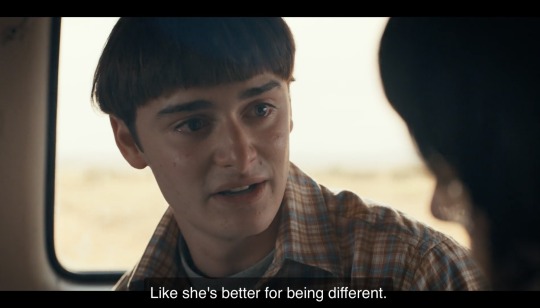
tagging: @downbytheriversside
#will byers#will byers has powers#byler#<- target audience#stranger things#stranger things theory#WOOF this is long and ive been staring at it forever so hopefully this makes sense#very long and very rambly i know
744 notes
·
View notes
Text
I think there’s some real feminism at the core of Houses, at least in the Japanese version.
Remember how in the Nintendo Dream interview the creators said that Edelgard’s depth came from the fact she was both a cute girl and a conqueror? I think that’s the core thing here. We are meant to see her as both, not just one or the other. The cute girl parts are meant to draw us in so her actions as the conqueror come as a shock to players, but at the same time those bits are meant to show she’s not some flat villain.
She’s still the bad guy here, but she’s meant to be sympathetic due to how TWSITD are exploiting her. Meanwhile, no matter how much IS panders to audiences using her as waifu-bait, we are meant to view her on her actions and beliefs.
Like Ferdie says at the end of SS/VW, she’ll get what she wants with the next ruler of Fodlan being one of merit not birth, the problem was what Edelgard viewed as merit (and methods, can’t forget the methods). After all, Dimitri’s merit over Edelgard is his Oudou to her Hadou, his benevolent rule that serves the people over her tyrannical rule where the people exist to serve her. Not to mention, straying from Wilhelm’s definition of knowledge-based merit where leaders protect their people to one based around coveting strength and oppressing those beneath you is also meant to represent the Empire’s fall to Hadou.
Edelgard is a female character whose objectification may draw people in, but we’re meant to see past that. We’re meant to see past that, to see the depth the devs bring up as well as the trick they wanted to play on the players.
Even Edelgard’s crush can be seen as problematic. No matter how she feels about Byleth, fact is she lied to and tried to manipulate them into serving her. If Byleth does not teach her, she’ll still talk about how fighting them makes her weak despite the lack of interactions between them (aside from her appearances as the Flame Emperor) and calling Byleth her teacher during her death in VW. No matter how you slice it, this is not a healthy relationship and joining Edelgard goes against Byleth’s character arc so it’s ultimately toxic to Byleth. Edelgard “loves” Byleth despite not even knowing them, treating Byleth and the player as her husbando/waifu.
I think, however, that what Treehouse did made her problematic. They took Edelgard and changed things. A number of endings associated with CF were changed, especially the main ending to CF itself, to make her rule look more benevolent. We have changes in the text to make the Church look worse, while parts associated with the game’s Buddhist symbolism were watered down. That she wasn’t going to steal the Crest Stones to make people into monsters, she was going to destroy them because she views them as a poison, and talk of her information campaign was removed. Edge of Dawn links the flower to a red rose rather than the intended safflower, which holds vastly different meanings.
It tries to make the game more grey, but you have to ask yourselves why. Did Treehouse do this because they thought people would be upset if they joined Edelgard only to find they’re playing a villain route, or did they do it because they didn’t want the female lord to be the villain? That they took a look at who she was and what she does, diluting those things in order to make her more acceptable despite, you know, how Edelgard is still an unapologetic imperialist intent on mowing down everyone who doesn’t bend the knee?
Treehouse looked at Edelgard and changed her to suit their beliefs...and that still wasn’t enough considering how her fans take it ever further. As I’ve said before, no one hates Edelgard more than her own fanbase.
11 notes
·
View notes
Text
anybody else notice how the writers unnecessarily (and maybe unintentionally?) gender certain issues in outer banks? like financial issues, being working class, anxieties about being able to support yourself/your family, and physical abuse are masculine issues, and every character who is dealing with one or several of those things is male. where social alienation, feelings of being trapped in a certain role/life, conflict in romantic relationships, intrafamilial conflicts, and emotional abuse/manipulation are feminine issues, and almost every character who is dealing with one or several of those things is female. none of the “pogues” strictly speaking are girls — kiara insists that she is but from her introduction, she’s distinguished from her friends by being 1) upper class, and 2) female, to the point that john b says he doesn’t know why she hangs out with them (even though they’re apparently best friends?) and they all have a thing for her, placing her in a “love interest” role immediately. even though they dismiss a potential romantic relationship with john b immediately, who she’s going to end up with is a major preoccupation of both the writers and a large portion of the viewership. she’s also held to different standards by both, and the only reason she gets to act how the main characters act is because she’s acting like she’s “one of the guys,” but it’s transparent that she doesn’t act like that in other social contexts and she’s not in the same socioeconomic position as them at all, calling herself a “pogue” is something she can take on and off at will (which she does during her “kook year”). the only girl we see who is working class is the girl john b talks to at the bonfire and we’re supposed to be against her (since we’re on sarah’s side. also, she comes across as like. trashy. maybe even slutty — that’s not how i personally would read that character but i do think it’s how the writers expect us to read her. also there’s something to be said for the way they have to write an equivalent of topper for john b just for that one scene so they can create conflict between him and sarah, because there are no female counterparts for the pogues the way there are for the kooks. it’s pretty transparent to me what the implications are both in how they wrote that character and why they had to write her)
the exceptions are cleo and topper. but cleo 1) was only introduced in season 2, 2) is not part of the pogues vs kooks thing, 3) is not actually part of the main cast of characters (yet), 4) is not actually in the show that much and is an antagonist for most of the season, 5) is something of a token Strong Female Character tm and the only reason she’s compelling is because the actress knows what she’s doing. with topper, his narrative arc only revolves around his relationship with sarah, but he ends up feeling emasculated and has to reassert his masculinity throughout the show — the fact that he isn’t concerned with “masculine” issues and takes a secondary role to sarah is problematized. vs rafe, who has pretty severe financial problems despite his upper class background, mostly motivated by trying to prove his capability (i.e. masculinity) to his father, who doesn’t have the same expectations for sarah, (and also proving he’s not “soft” to barry, who is a foil to him mainly on the axes of class and masculinity). also compare to the other men in romantic relationships, where relationship drama takes a backseat to their main goals, and then compare to the women, who are compelled to become part of the story by men and whose main concern ends up being relationship related (kie is the most obvious, i do think sarah is more well rounded but after her dad’s “death,” they pivot the story to be about her relationship with john b instead of her grieving for her dad, where john b’s grief for the loss of his father in season 1 is rightly given a lot of time and space to process. her feelings still take a backseat to his — another example of this is when she gets shot by her own brother and almost dies, and the framing of the scene is still about john b’s feelings. it’s like they were following the trope of killing her off for Man Pain tm but then didn’t follow through on the killing part lol, which is slightly better but still shows where their priorities lie). anyway. it’s all very weird to me because they do realize that if teenage boys are dealing with these class related problems, teenage girls are also dealing with those same problems? and vice versa? like it’s a weird combination of sexism and classism to act like simply existing as a girl from a working class family is unfeminine or something. anyway where are our stories about girls who get to act like the main characters of this show get to act? why do we act like that’s inherently guy behavior
#outer banks#obx#like it almost gets into gender essentialist territory#it just makes me think about what are acceptable ways for girls to act or just exist even in fiction#why is it trashy for girls to be from low income backgrounds? why can girls only ‘slum it’ when they choose to? when they have options?#and when it’s with or for guys?#i’m sick of it personally#anyway sorry for outer banks posting i know it’s not that deep#but also it is that deep. it is and it isn’t
21 notes
·
View notes
Text
Daniel LaRusso: A Queer Feminine Fairytale Analysis Part 1 of 3
Disclaimers and trigger warnings:
1. These fairytales are European, although there’s often overlap in themes globally. I know European fairytales better, which is essentially the reason I’m not going to branch out too far. I opted to also stick to Western movies so as not to narrow things down, but also in particular “waves hand towards all of Ghibli” amongst many others. There’s a reason the guys in Ghibli are so gender.
2. TW for discussions of rape culture and rape fantasies
EDIT: FUCK I’M A GOBLIN CHILD! FORGOT TO PUT A MASSIVE MASSIVE THANK YOU TO @mimsyaf WHO HAS BEEN THE NICEST, KINDEST EDITOR ON THESE THOUGHTS AND CONTRIBUTED SO MUCH TO THEM AND GENERALLY IS A WONDERFUL PERSON!
Part 2
Part 3
1. Introduction
I recently wrote a little thing, which was about Daniel as a fairytale protagonist – specifically one that goes through some of the kinds of transformations that are often associated with female protagonists of fairytales.
I used quotes from Red Riding Hood, Labyrinth, Buffy The Vampire Slayer, and Dracula, which, as an aside – the overlap between fairytales, horror, and fantasy and the ways each of those genres delve into very deep, basic questions of humanity and the world is something that will always make me feral. I will be generally sticking with fairytales though. Also I am very excited about some of those Labyrinth concepts going around!
I’m going to use “feminine” and “masculine” in both gendered (as in relating specifically to people) and non-gendered (as in relating to codes) ways throughout this, depending on context.
To be binary for a moment, because sample-sizes of other genders are low, women are usually able to fall into either feminine or masculine arcs, although sometimes the masculine-coded woman can become a “not like the other girls” stereotype and the feminine-coded woman a shallow cliché – in both cases they’re also under more scrutiny and judgement, so it’s always worth asking “is this character not working for me because of the writing or because I have ingrained biases? (Both?)”
Men don’t often get feminine-coded arcs. Because. Probably a mix of biases and bigotry. But there are some that seem to have slipped beneath the shuttered fence of “Sufficient Narrative Testosterone,” and Daniel LaRusso is one of them.
2. Some Dude Comparisons (Men Doing Manly Action-Hero Things like being trans symbolism and loving your girlfriend… seriously those things are hella manly, I wish we saw more of that onscreen…)
a. Neo
Much like Neo The Matrix, whose journey is filled with transgender subtext and specifically and repeatedly references Alice In Wonderland, Daniel doesn’t go through quite the kind of hero's journey usually associated with Yer Standard Male Hero, especially the type found in the 80s/90s.
Neo is my favourite comparison, because of the purposefulness of his journey as a trans narrative and the use of Alice. But I’m sure there are other non-traditional male heroes out there (but are they trans tho? Please tell me, I want trans action heroes).
Neo “passes” as a socially acceptable man, but online goes by a different name - the name he prefers to be known by - feels like there’s something inherently wrong about the world around him and his body’s place in that society, and then gets taken down the rabbit hole (with his consent, although without really “knowing” what he’s consenting to) to discover that it’s the world that’s wrong - not him. And by accessing this truth he can literally make his body do and become whatever he wants it to.
Yay. (The message of the Matrix is actually that trans people can fly).
Neo is – kind of like Daniel – a strange character for Very Cis Straight Guys to imprint on. He spends most of the first movie unsure about what’s going on, out of his depth, and often getting beaten up. He is compared to Alice several times and at the end he dies. He loses. He has to be woken up with true love’s kiss, in a fun little Sleeping Beauty/Snow White twist. Yes, after that he can fly, but before that he’s getting dead-named and hate-crimed by The Most Obvious Stand-In For Normativity, Agent Smith, and being carried by people far more physically capable than he is (people who also fall outside of normative existence).
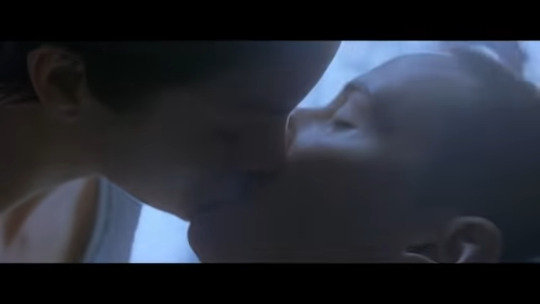
Trinity and Neo in The Matrix. The fact that a lot of the time neither of them is gendered is something. Literally brought to life by true love’s kiss.
I’m not about to argue that Daniel LaRusso is purposefully written along these same thought processes, so much as the luck of the way he was written, cast, directed, acted, and costumed all came together in the right way. And this is even more obvious when compared to That Other Underdog Fite Movie That Was By The Same Director as Karate Kid.
b. Rocky
The interesting thing about Rocky is that he is (despite being a male action icon) also not written as a Traditionally Masculine person. Large portions of Rocky – and subsequent Rocky films – are his fear and insecurity about fighting vs his inability to apply his skills to another piece of work and wanting to do right by his girlfriend (and future wife), Adrian. The fighting is most often pushed onto him against his will.
Much like in Karate Kid there is barely any fighting in Rocky I. Most of it is dedicated to how much Rocky loves Adrian and the two of them getting together. The fight is – again like in Karate Kid – a necessary violence, rather than a glorified one (within the plot, obviously watching any movie like this is also partly about the badassness of some element of the violence – whether stamina or the crane kick, it’s all about not backing down against a more powerful opponent).
Rocky is played by Sylvester Stallone. He’s tough, he’s already a fighter (albeit in the movie not a great one yet), he’s taking the fight for cash – so although he’s also soft-spoken and sweet, you’re aware of the fact that he’s got those traits that’d make a male audience go “Hell Yeah, A Man,” or whatever it is a male audience does watching movies like that… cis straight men imprinting on oiled muscle men sure is a strange phenomenon, why do you wanna watch a boxing match? So you can watch toned guys groaning and grappling with each other? Because you want to feel like A Man by allowing yourself to touch the skin of other men?
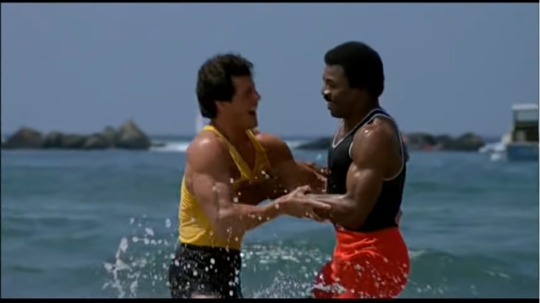
Apollo and Rocky in Rocky III. This sequence also includes prolonged shots of their crotches as they run. Sylvester Stallone directed this. This was intentional. Bros.
Daniel LaRusso is not built like that. But that doesn’t really have to matter. Being smallish and probably more likely to be described as “pretty” than handsome, and not having a toxic masculine bone in his body does not a feminine archetype make. It just makes a compelling (and pretty) underdog.
c. Daniel
So where does the main difference really lie? Between Rocky and Daniel? Well, Rocky has the plot in his hands – Daniel, largely, does not. Rocky is acting. Daniel is reacting or being pushed into situations by others. Just like our boy Neo. Just like Alice in Wonderland, Cinderella, Snow White – just like some of the women in some contemporary(ish) fairytale films like Buttercup (Princess Bride), Dorothy (Wizard of Oz), or Sarah (Labyrinth).
This isn’t a necessary negative about stories about girls and women, so much as looking at what it is girls and women in fairytales have/don’t have, what they want, and how they’re going to get it. It’s about power (lack of), sexuality (repressed, then liberated), men, and crossing some taboo lines. It’s also about queerness.
3. The Karate Kid Part One: Leaving Home
Daniel LaRusso is a poor, skinny, shortish kid (played by a skinny, shortish twenty-two-year old) who doesn’t fit in after having been taken away from the home he was familiar with against his will. Not every male protagonist in a fairytale leaves of his own will, and not every female protagonist leaves under duress – Red Riding Hood, for example, seems perfectly happy to enter the forest. However generally a hero is “striking out to make his fortune,” and generally a heroine is fleeing or making a bargain or being married off or waiting for help to arrive. She is often stuck (and even Red Riding Hood requires saving at some point).
Daniel then encounters a beautiful, lovely girl on the beach, puts on a red hoodie (red is significant), is beaten up by a large, attractive bully, loses what little clout he may have had with his new friends, and generally has a mostly miserable time until he befriends and is saved by Mr Miyagi. To do a little Cinderella comparison: Miyagi is the fairy godmother who pushes Daniel to go to the ball in disguise as well, and that disguise falls to pieces as he’s running away.
Then Daniel asks for help, Miyagi gets him enrolled in a Karate Tournament, and starts teaching him. Daniel wins the tournament and gets the girl, the end.
While Daniel has chutzpah and is a wonderful character, none of the big events are initiated by him, except for the initial going to the forest/beach (and within all of these events Daniel absolutely makes choices – I’m not saying he’s passive): Lucille takes them to California, Miyagi pushes him to go to the dance, Miyagi again decides to enroll him in the tournament and trains him, and only because Kreese doesn’t allow for any other option, Ali is the one who more often than not approaches Daniel, and even their first encounter is pushed by Daniel’s friends.
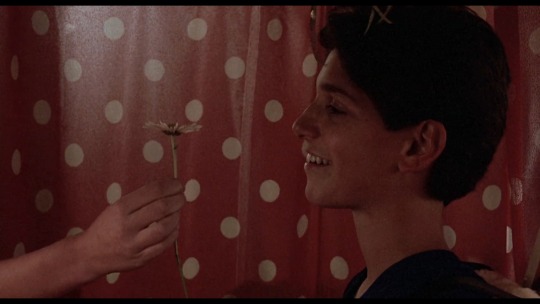
Daniel really is at a dance/ball in disguise and receives a flower from a girl who recognises him through said disguise, it’s unbearable! It’s adorable! I get it Ali, I fucking get it!
Daniel’s main journey within this – apart from not getting killed by karate thugs (love u Johnny <3) and kissing Ali – is to learn from Miyagi. He’s not necessarily a full-on feminine fairytale archetype at this point, although there are fun things to pull out of it, mainly in the context of later films and Cobra Kai: the subtext of karate and how that builds throughout all the stories, the red clothes, the themes of obsession, his being targeted by boys whose masculinity is more than a little bit toxic and based on shame… more on all that coming up.
He doesn’t technically get a home until they build him a room at Miyagi’s place, but he definitely leaves the woods at the end of this one, trophy lifted in the air after being handed to him by a tearful Johnny and all.
And then they made a sequel.
4. The Karate Kid Part Two: Not Out Of The Woods Yet
Daniel’s won the competition, Kreese chokes out Johnny for daring to lose and cry, more life-lessons are given (for man without forgiveness in heart…) and Daniel and Ali break-up off-screen, confirming that TKK1 was not really about the girl after all, which, despite Daniel and Kumiko having wonderful chemistry, is also an ongoing theme. Daniel enters the screen in The Most Baby-Blue Outfit seen since Tiana’s dress in Princess and the Frog? Or that dress in Enchanted? Maybe Cinderella’s (technically silver, but later depicted as blue)?
(Sidenote: At everyone who says Sam ought to wear a callback to that suit, you are correct and sexy).
Surprise, Miyagi’s building him a room.
Double-surprise, Miyagi needs to go to Okinawa.
Triple surprise, Daniel reveals he’s going with him, because he’s his son dammit.
The Karate Kid Part Two is maybe the least Daniel-LaRusso-Feminine-Fairytale-Protagonist of the three, because it’s not really his movie. Daniel runs around with Kumiko (aka the most beautiful girl I’ve ever seen), continues to be The Best Non-Toxic Boy a middle-aged Okinawan karate master could ask for, lands himself another Built Karate Rival (twice is just a coincidence, right? Right?), and eventually doesn’t die while wearing red again – twice: When Chozen almost strangles him to death at the Miyagi dojo and then during the final fight. The Saving Of The Girl (both the little girl in the storm and Kumiko) actually puts him in a more traditional masculine space than the previous movie did, even if the main theme of the film is about compassion and kindness and by the end, once more the boy whose masculinity is built on rockhard abs and matchsticks is on his knees. Daniel just has that power over big boys. It’s called kick/punch them in the face hard enough that they see stars.
There’s an aside to be made here about how much Daniel really is an observer in other peoples stories in this, although he is the factor that sends both Chozen and Kumiko into completely different directions in life (Chozen and Kumiko main characters when?) Anyway he comes out of it presumably okay, despite being almost killed. Maybe a few therapy sessions and he’ll get over it. Too bad Terry Silver is lurking around the corner…
5. The Karate Kid Part Three: The Big Bad Wolf
Alright people have written Words about the third movie. It’s fascinating. It’s odd. It’s eye-straining. It’s like olives – you’re either fully onboard the madness or it’s too off-putting for you (or you’re like. Eh, don’t see what all the fuss is about either way...). It’s basically a non-consensual secret BDSM relationship between a guy in his thirties (played by a Very Tall twenty-seven year old Thomas Ian Griffith) and a 17/18 year old (played by a shorter twenty-eight year old Ralph Macchio).
Also recently we got more information on Mr. Griffith’s input on the uh… vibes of the film. Apparently it wasn’t just The Sweetness of Ralph Macchio’s face, the screenplay (whatever that amounted to in the first place – release the script!), the soundtrack, the direction to not tone it down under any circumstances, the fact that Macchio categorically refused to play a romance between himself and an actress who was sixteen, no: it was also TIG coming up with fun ways to torture Daniel’s character and suggesting these to the director. Clearly everyone has fun hurting Mr Macchio (including Mr Macchio).
The point is that aaallll of that amounts to that Intense Homoerotic Dubiously-Consented-To D/s subtext that haunts the movie and gives a lot of fun stuff to play with. It’s also a film that – if we’re analysing Daniel along feminine-coded fairytale lines recontextualises his role in this universe.
The Fairytale goes topsy-turvy. Through the looking glass. Enter Big Bad Wolf stage right. Karate is a metaphor for Daniel’s bisexual awakening.
“Oh, when will an attractive man touch me in ways that aren’t about hurting me?” he asks after two movies of being hurt by boys with rippling muscles. “Why do men continue to notice me only to hit me? Do you think wearing red is making me too noticeable? Anyway, Mr Silver looked really good in his gi today.”
Daniel’s diary must be a trip.
#daniel larusso#the karate kid#cobra kai#ck#johnny lawrence#cobra kai meta#my writing#part one of three#some comparisons to matrix and rocky because I love to talk about those#terry silver
95 notes
·
View notes
Text
The Rebel/叛逆者: A Review of Sorts
After being only semi-invested in the Rebel, I ended up getting so into it in the final weeks of its release, I’ve shelled out on IQIYI premium just to get the final couple of episodes a few days earlier.
That’s right kids, it’s a Review of Sorts. Unfortunately, I could not find a translation of the novella the drama is based on, so will be looking at it as a separate entity.
Most of this post is spoiler-free, however I have dedicated a few paragraphs at the end of it to discussing the final episode, as there are a few specific things about it I wanted to mention. There is a clear spoiler warning before that part.
If you don’t want to risk it, TL;DR version of this review goes something like this: Rebel is very decent, and positively one of the best things that I have seen to come out of China since I’ve jumped into that particular rabbit hole. It’s pretty well written, it’s very beautifully dressed and shot, and the cast is killing it. I thought it dropped the ball a little in post production, and I did not always love the pacing. Other than that, it’s incredibly decent, and well worth watching, unless communist propaganda really irks you, in which case stay very well away.
I have been having many conversations with @supernovasimplicity all the way through watching this drama, so there are likely to be some thoughts here that are influenced by those.
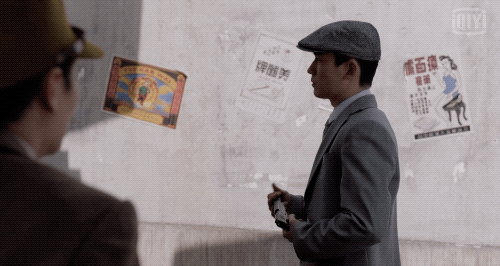
The story centers around Lin Nansheng, a struggling servicemen in the Guomingdang party. He has a great analytical mind, and absolutely no emotional capacity for his job. He has trouble handling violence, he is impulsive, he cannot speak to his superiors without bursting into tears, and has nothing even remotely resembling a poker face. And that is what makes this drama as enjoyable as it is.
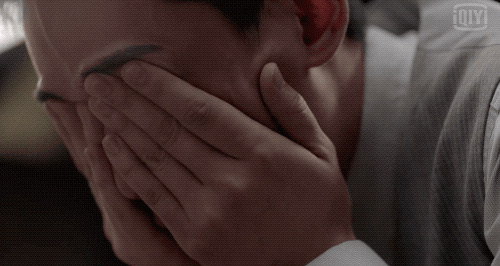
I don’t think Lin Nansheng’s journey would have been nearly as exciting had he started it from a place of competence. He botches up everything he touches because his big brain switches off the moment his emotions kick in. And so, when you see him grow in confidence, learn to control himself, learn to fake his smiles and compliments, you can’t help but feel a strange sense of pride. It also makes Lin Nansheng very likeable as a character for reasons other than Zhu Yilong’s ability to look like a bush baby.
It did take me a while to feel fully engaged with his performance - not because there is anything lacking in it, but just because it’s hard to be truly surprised by his choices after the exposure I have given myself to his work. That said, at about a half-way point I got charmed by him anyway, and there were quite a few scenes that were truly mesmerising. There were scenes where he broke out of the familiar mould of big unguarded eyes and fluttering wet eyelashes, and tried something that was not pretty: every time to a great success. I am hoping to see more of that in his future work.
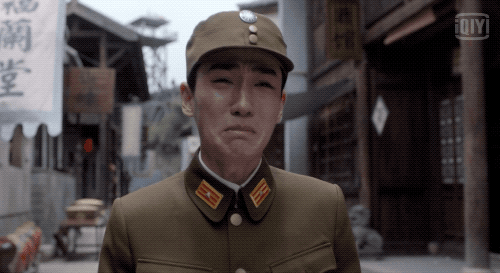
I really wanted to like the female lead, Zhu Yizhen, but unfortunately both the way she was written and the way she was performed by Tong Yao left me somewhat cold. It did not help of course that the screenplay ended up sidelining her at every turn, leaving her with very little personal agency. She was set up so interestingly, but in the end her sole purpose became being someone for Lin Nansheng to pine over. It is particularly curious from a perspective of meta storytelling: seeing how this is all centered around superiority of communism, which as a whole was, arguably, ahead of its time in the matters of binary gender equality.
The ensemble cast of the drama is stunning. Wang Yang came very close to stealing the show at several points as Chen Moqun, somehow managing to make his rather unlikeable character interesting. I can say the same thing about Zhu Zhu who absolutely shined as Lin Xinjie, showing an incredible range and imagination in her performance.
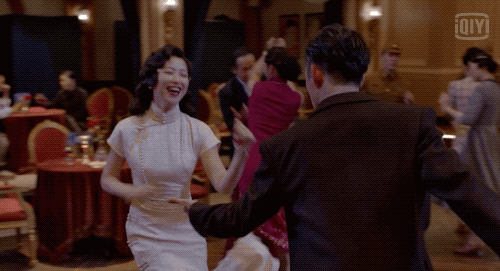
The overarching story of the show is engaging, with some incredibly suspenseful elements; every narrative arc including a nice progression through it. As spy thrillers go, it was fairly well plotted. You could if you go looking for a few things that did not pay off in a satisfying way (notably, the Chekhov’s cyanide capsule), but you overall the story really was well told for the most of it.
I did, however, feel like the pacing started to fall apart in the last quarter of the drama. Last episode in particular really did feel rushed, not just due to its pace, but also in a way it failed to pay off the final mission in any visible way. There will be more on that in the spoiler section of this post.
Important to note that The Rebel is a show made in Communist China in the year 2021. It does not ideologically side-step from the path that was laid out for it by that fact. Which is to say, it is, undeniably, filled with propaganda. Communists are the good guys, and if you think a good guy (or gal) is not a communist, they probably secretly are. With one exception of a friendly character who is not a communist, and whose fate we actually never find out. Curious, that.
The Rebel is not a kind of a show where censorship-appeasing scenes are shoehorned in. It’s a kind of a show in which the main theme is Sacrifice For the Party.
Aside from the being the moral vector of the show, Mao’s gentle teachings explicitly help get Ling Nansheng out of prolonged depression following his injury, and almost annoyingly, this sat incredibly well with the character, as he was written. Lin Nansheng is conceived as this naive idealist who wants to be on the front line, who needs validation and support of others. His - and I can’t believe I’m saying this - his being disillusioned in his beliefs and choosing to join a party which includes people whom he likes and trusts makes sense. Him finding this one thing that gives him hope and letting it propel him into gaining confidence and competence makes sense.
In many ways, the Rebel is a story of Lin Nansheng’s failure to become an antagonist within the world of the drama.
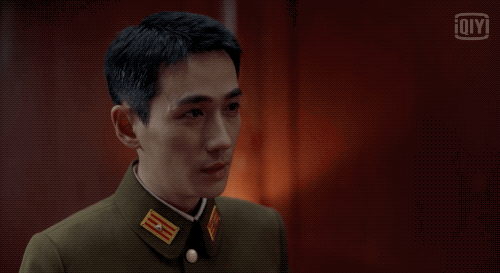
I have honestly spent this past couple of weeks pondering whether being well written makes political propaganda better or worse, whether the subtlety of it makes it more or less palatable, whether it’s enough, as a viewer, to be aware of it to shrug it off. Ultimately, this is not something I could or should make moral judgements on, but I do believe that it’s possible to acknowledge the fact that propaganda exists in the drama, and still appreciate it for a good piece of television that it is.
That said, I am very well aware that me being kind of okay with it stems entirely from my own removal from the culture this is made in, and I am, perhaps, lucky to even have a choice as to whether I want to engage with a product which is, undoubtably, here to dress political ideology in fancy clothes.
I have, on the other hand, also seen many things in Russian media of the “Annexation of Crimea is Good Actually” variety and those make me feel very unwell, so feeling somewhat at ease with blatant political propaganda in Chinese media makes me the biggest hypocrite.
But, I digress.
Before we go into some specific plot-related things, I would like to mention that the Rebel has this weird dichotomy in which the production is sublime, and the post-production… not so much. The show very well shot. Every element of it sits perfectly together, not a single prop out of place, not a single extra underdressed, not a page of script not put to good use. It’s lit to perfection. It’s scored beautifully. So much of this show is just stunning.
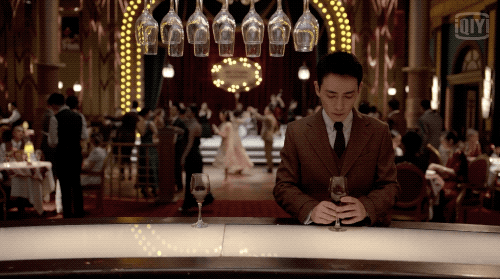
And then… there is post-production.
This is not even about bad CGI (and the CGI is, indeed, bad), it’s just that most of post-production as a whole feels rushed.
Starting with surprisingly imperfect editing, which at times just fails to make the scene flow together. The final line of dialogue would be spoken within a scene, and it would fade to black instantly without a single breath to indicate a full stop. A montage sequence would be created, but every shot within it condensed to a second, making it feel incredibly fast-paced when the effect should be the opposite. There would be a cut away from a speaking character and to the same speaking character from a slightly different angle, making it dynamic without any reason to do so. There are a couple of truly startling jump-cuts.
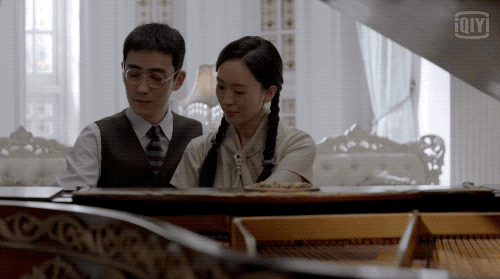
I did not speed this gif up. This is part of a romantic montage, edited like it’s a goddamn action sequence.
And of course dear old friend slowing down footage shot at 24FPS. Please don’t do this. You think no one notices - but we do.
There are other tell-tale signs of production rushing to the finish line: occasional, but very noticeable ADR glitches, very sloppy job done at sound mixing, which contribute to parts of the show feeling ever so slightly off.
It’s not unforgivable, but it does make me wish the same amount of care and efforts that went into shooting this drama would also go into it after it was all in the can.
Oh, and just because if you know me you know I have a professional fixation on fights, and I am happy to say most action scenes are toe-curlingly delightful. Hot damn those fights are good. I am absolutely in love with the shot below, for example. Placing an actor behind a piece of set so he can exchange places with the stunt double during a one shot is such an old trick, but the execution, timing and camerawork are just... flawless. This is what perfection looks like.
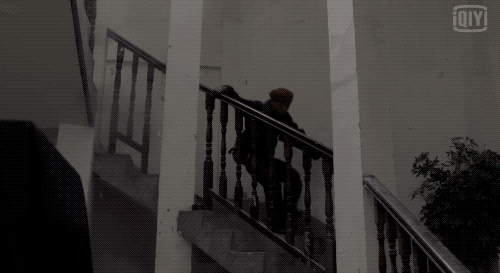
Now we got all that out of the way...
SPOILERS FOR THE SERIES FINALE BELOW
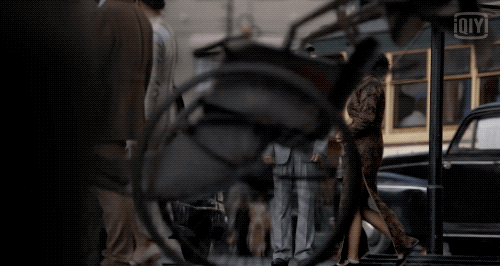
Here’s the thing. I wanted to love the ending and I found that I could not.
The final mission was presented as important, and honestly the scene in which Zhu Yizhen is sending the vital message out as Lin Nansheng holds his ground in hand to hand fight is incredibly dynamic. Party, this is due to the fight itself being incredibly well choreographed, yes, but it’s also where it sits within the narrative, how high the stakes are for everything surrounding it.
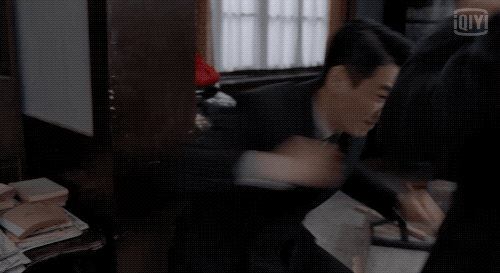
But then, the tension all but bleeds out. The Important Message is sent, the fight is won, and we are treated to ten minutes of a very slow car chase, problem of which is not even its speed as much as its placing within the story. As in, by this point both of those operatives have lost their cover, and completed their Very Important Mission. It would be very sad if they died, but their survival does not technically contribute to their cause. Moreover, Zhu Yizhen getting mortally injured in order to protect Lin Nansheng as part of her mission read a little empty when the mission is technically over.
While I personally found Lin Nansheng slow recuperation and his low key ending enjoyable, I think I would have preferred to have seen a more tangible pay-off to all the sacrifices made in the name of “bright communist future”, just a little more justification for every moment of death and despair we witnessed. I would have certainly at the very least preferred to see Wang Shi’an’s death on screen. Considering how many likeable characters martyred themselves on screen, denying us the death of the one antagonist just seemed cruel.
I really did love the ambiguity of the final few scenes however, if we consider the children choir at the end a fantasy. The idea that Lin Nansheng will live out his life in this hope that Zhu Yizhen is still alive, imagining her just outside of his field of vision, his only joy being in this fantasy of her… now, that is incredibly strong. I equally like the idea of rest being promised to him at the end of his journey, and said rest being painful, and slow and unwelcome.
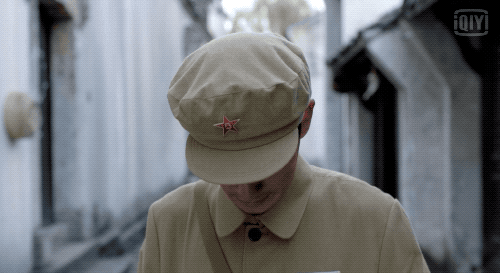
But it felt like as they chose not to to lean into the “sweet” part of the bitter-sweet tone of the ending and we’re unable not commit to the “bitter” part either, so it lands with a splat which is somewhat lacklustre.
---
This concludes my thoughts on the Rebel.
I am more or less out of Zhu Yilong’s filmography to watch, which is probably a good thing at this point. I have just emerged out of several back to back work projects - literally today - and will hopefully once more have time for things I grew to enjoy doing during the lockdown.
Those things, if you have not guessed, include watching Chinese television and writing things about Chinese television.
45 notes
·
View notes
Text
do you really need to bring shipper wars in the Austen fandom too?
Full offense but people who deny Emma is in love with Mr Knightley and hate on him because they ship her with Harriet, and pretend she should’ve ended up with her, are bullshit. I’m tired of these posts (including the Harriet stans whom I saw bashing even in some emma/knightley posts when fans of the latter are the first to make cute posts about Harriet too), and honestly, you all just make me feel very negative about Harriet and unable to truly appreciate her scenes with Emma.
Maybe I just don’t care about being a bitch but here’s what an Emma fan who is just tired of the anti Emma/Knightley crap honestly thinks about your nonsense:
Hating on the last Emma adaptation because Emma is in love with Mr Knightley and marries him in the end is as disingenuos and idiotic as hating a Pride and Prejudice adaptation because Darcy and Elizabeth are in love. Le duh! You can ship him with Bingley and her with Charlotte (or Wickham, if that’s your mood I’m not judging shipping choices here) but if you watch a movie based on an Austen’s book you know what you are getting yourself into, especially when her canon romances tend to be very important plot elements for the protagonists and their character growth.
I get it’s 2021 and hating all het romance makes some people feel woke and edgy, and I totally get alternative readings and things like that, but out of ALL Austen ships and all her female heroines, Emma is the one female character who doesn’t even need, neither want, to get married and truly only does that in the end because she is in love. Emma is the LEAST Austen heroine whose romance you should even question because she honestly only married the guy because of love and no other reason. Furthermore, unlike most of romances from that time, the guy Emma marries isn’t just some random guy she has met two seconds ago, it actually is her best friend, someone she knows since years and the one person who knows her best and loves her in spite of her flaws. Austen was very forward for her time with their romance, especially given the fact her male love interest actually decides to live with Emma and her father in the end instead of doing what every married man had the right to do at the time (take his wife to his own home where she’d have little to no power). Knightley and Emma are the (original) best friends to lovers relationship. He’s the best friend Emma had loved from the beginning without realizing it. It’s one of the main points of her story and the great irony of the novel that she thinks love isn’t for her, and she had never been in love, but she already is in love with him without realizing it because of their friendship. I’m sorry bro but that had never been Harriet, and it seems hypocritical tbh for some of you to want to give Harriet the story that Mr Knightley has with Emma, all the while hating on him and the romance. Even with the last movie, you have people take quotes de Wilde said about Knightley and Emma (e.g., the one about the movie making you think about ‘the best friend you maybe should have kissed’) out of context to manipulate others into thinking she was talking about Harriet instead (and queer baiting, which would be homophobic)
On one hand, we really do need more stories that put an emphasis on female friendships too and on other relationships that aren’t just the romance. On the other hand, it’s completely useless for writers to try to give us that (e.g. de Wilde in the last Emma) if everytime two characters care about each other and share screentime together, people claim that relationship (and all scenes that make perfect sense with a normal platonic relationship) must be romance and romance only. It’s almost as if some of you never had a friend and therefore believe that everytime a character cares about another character they must be romantically in love with them. It also makes me believe, more than anything, that romance is the only kind of love that exists or is important for many of you. And if that is the truth, why even bother with fictional friendships then? Why even complain when writers don’t give us that if we are unable to appreciate those relationships as something of equal importance with romance?
I really can’t take people serioustly when they overinflate Harriet and her relationship with Emma all the while they minimize Emma/Knightley’s mutual feelings. I read people who apparently find it harder to erase Harriet’s baseless crushes on every guy who gives her attention, than erase the actual love story and feelings of the protagonist! Tbh, even if you wanted a gay adaptation of Emma (and not one that is that just for the sake of), it would make much more sense to simply turn Mr Knightley into a female character, therefore still respecting the canon couple and Emma’s character arc, than ship her with Harriet. The latter is a weak alternative and frankly baseless for me because the only things she and Emma have in common is the fact they are both girls and they have an ‘e’ in their name. Full stop. Intellectually, Harriet is no match for Emma and their ranks in society are so apart that their relationship could never ever be equal (and it never was). I don’t want to be harsh but tbh I was never convinced they are actually friends in the novel, and the last movie made it even worse for they emphasized Harriet’s blindness about Emma’s feelings, and how one sided that dynamic is for it’s just Emma who makes an effort to be a friend in the end. Let’s be real here, Harriet doesn’t even know Emma and never really acts as a friend to her, unless your definition of friendship is ‘someone who worships you, and pretends you are the best and right even when you aren’t, as long as they perceive you as a savior who can help them'. That’s not what being a friend means to me. It speaks volumes to me that the one and only time movie-Harriet actually notices that Emma is a human being with flaws and feelings too is when she gets angry because Emma wants the same guy she wants. I don’t know if Austen’s ‘naive and completely clueless Harriet’ is worse or better than de Wilde’s version but the latter really emphasizes one of the biggest issues of Emma/Harriet even more, to me. As a book Emma fan, before an adaptations fan, I read all kinds of comments about this novel and character but honestly, I never read any real convincing argument why Harriet and Emma should be a couple instead of her and Knightley. Most of what I read boils down to people taking things out of context and/or claims that Harriet is ‘better’ for Emma just because she’s a woman and she agrees with her all the time, while Mr Knightley is the bad guy because he’s older than her (he’s only 37, btw) and criticizes her ( as if Emma doesn’t need someone to criticize her, and her character growth isn’t dependent on precisely that). I get some people wouldn’t like to have someone who is criticizing them but worshiping someone is =/= being their friend or appreciating their real qualities. I also read people point up how much Emma praises Harriet in the book as proof that she’s in love with her, but the same ignore the many instances, especially after Harriet tells her that she loves Mr Knightley, that truly show Emma’s real colors and how much she still considers Harriet her, and especially Mr Knightley’s, inferior to the extent she regrets their friendship and thinks Harriet is ‘uppity’ for thinking Mr Knightley would ruin his reputation to marry someone like her. When I read those arguments it seems, if anything, that people want to have the cake and eat it by saying that Austen’s own story doesn’t matter (and she doesn’t understand her characters’ real feelings) when it comes to the things those people don’t like (eg the fact Knightley is the one Emma is in love with and all the explicit hints about that ), all the while still selectively using some of her writing to support their alternative version of the story. Now with the last movie adaptation, it’s even worse for me. It’s telling that the two scenes people romanticize as pro Emma/Harriet are two phrases/moments that actually emphasize the bad side of their relationship, and why their friendship isn’t good for either of them. The first is the scene when Emma says she ‘wants to keep Harriet for herself’: not only there is nothing romantic about that ( that line is in the book too as well as Knightley’s ‘your infatuation is blinding you’. You are reading a book written in 1800 with modern goggles though, and that alone doesn’t really work) but that phrase should actually make you cringe for it emphasizes how selfish and manipulative Emma is by treating Harriet like her new pet project just because she’s lonely. She doesn’t care about the girl’s feelings for Robert Martin, and what is truly the best for her due to her rank (and how dangerous it actually is for Harriet to not marry and find someone who can offer her protection), even if it’s what she tells herself, she only cares about her own desire to have a new female friend because she lost Mrs Weston and she feels lonely and bored. It’s also true, though, that she is still lying to Mr Knightley too because she does actually want to match Harriet with Mr Elton, that which is obvious in the other scenes, but even that is an expression of Emma’s selfishness and not really a hint of her caring, let alone loving, Harriet as a human at this point. If you read the book, it’s particularly obvious given the fact that Emma isn’t blind about Harriet’s feelings for Robert Martin for she knows that her behavior is bad and the girl actually cares about the guy, but she manipulates her into thinking Mr Elton is better because it’s her choice and she prefers him (until he proposes to her, of course. Then she thinks Mr Elton is trash for being so arrogant to believe someone of his rank could marry her) The second phrase people romanticize is only in the last movie and it’s that annoying ‘I refused Robert Martin because of you’ phrase by Harriet later in the movie. I hate that because, once again, that phrase has nothing ‘romantic’ about it unless you obviously ignore the context and what is actually happening there. Harriet is being passive aggressive with Emma there, gaslighting her and blaming her for the loss of her first suitor BECAUSE HARRIET WANTS MR KNIGHTLEY for herself. Harriet is angry with Emma there because she realizes she loves Mr Knightley TOO and Emma has more chances than her. The most likely sentiment behind that flippant phrase for me is something along the lines of Harriet impulsively telling Emma to move aside and let her have Mr Knightley because she made her lose Robert Martin already. She is trying to make Emma feel guilty, subconsciously or deliberately, but this surely is how Emma herself perceives Harriet’s words too for the poor girl really thinks it makes her a bad person to accept Knightley’s proposal in spite of loving him back. Harriet made her believe she was stealing her man and yet, AND YET, had Harriet been a real friend, to begin with, she should’ve realized Emma’s feelings for him way before she deluded herself into thinking the guy wanted her. But Harriet never cares about Emma’s feelings and even their reconciliation in the end is all, still, about what Emma needs to do for her. Not a word from Harriet about being happy for her friend too. Nothing.
Listen, I really appreciate de Wilde’s attempt to make the Harriet/Emma dynamic better than it is in either the novel or other adaptations, even if it personally doesn’t convince me it’s friendship. But I get it. Like I said at the beginning, it’s important that movies display different kinds of love too beside romance and if you can’t do that with characters like Emma who are the protagonist then when you can even do that? I think it was valid for her and Catton to want to emphasize the fact that Emma, at her core, is truly young and lonely and she doesn’t have friends in the truest sense of the word (Mr Knightley is one, of course, but their point is more about her having a female companion too whom Emma could do more ‘girl’ things she can’t do with her husband or father) but, honestly, I maintain no adaptation ever truly got their relationship right. No one. Overrating them and pretending that they are best friends forever when there is no substance for that is as incorrect as an interpretation of Austen’s writing as it is treating Harriet as a silly girl Emma barely tolerates. I appreciate the movie shows Emma’s conflict about Harriet when Knightley proposes to her because most of adaptations don’t do that: in the book she really, for a moment, feels so bad for Harriet and feels simultanously happy Mr Knightley loves her but also bad for taking the guy Harriet wants. She is no hero who wants to give up about him to let Harriet have the guy instead, though, but it isn’t like she doesn’t care either. She does and it’s a source of anguish for Emma and part of her character growth that she actually cares and feels empathy for Harriet.
However, if you want Emma to have a real female friend that’s not Harriet and that’s not really the story Austen wrote and the role she gave to Harriet. Like many academics pointed up, like many of Emma’s ‘mirrors’ in the story, Harriet is put there by Austen to emphasize Emma’s immaturity at the beginning and the fact she deliberately doesn’t choose her equals as friends and picks Harriet, instead, as her new pet project because her inferiority makes her easier to manipulate and, like Mr Knightley very eloquently points up, she makes Emma feel superior and more accomplished than she is. Emma doesn’t want to be friends with Jane, for example, because not only she could be more her equal but she actually does see her as superior in the aspects that make Emma the most vulnerable and insecure.
It’s great the movie gave more space to Emma’s relationship with Harriet, and I get that if you want to put the spotlight on female friendship too it’s either Harriet or Mrs Weston but also, let’s not pretend the movie wasn’t focused very much on her romance with Mr Knightley too, perhaps more than other adaptations did. People commend this adaptation for showing his feelings for her more and it’s true, but I will also argue that this movie does emphasize her feelings for him more than adaptations usually do for you really see Emma’s feelings and jealousy towards him before she even realizes her feelings. It’s obvious since their first scene when she’s waiting for him and runs to her piano because she wants to get noticed by him. Her breath constantly hitches when he’s close to her or because of her feelings for him, and she definitely reacts to dancing with him. She may not know her feelings from the start, she might be in her own ‘work in progress’ to figure everything out, but the movie makes it obvious to me that she loves him. If there is any adaptation where you want to be disingenuos about their chemistry and deny their romance, this really isn’t the one tbh. Look, if you want to headcanon Emma as bisexual you’ll find me agreeing with you, but pro LGBT readings and actual representation doesn’t mean, for me, shipping two characters together just because they are the same gender and the writers make them care about each other a bit, or give them screentime. Like I said at the beginning, if I wanted a gay adaptation of Emma I’d rather make Mr Knightley a woman than ship Emma with Harriet or Mrs Weston or Jane. Because regardless their genders, it’s the Knightley character the one Emma loves and wants to be with, and it’s this character who truly represents her best friend and the person who knows her best. It’s Knightley the only one who cares about her well being so much that when she is being the worst version of herself and no one cares, he is the one willing to tell her even if he hates doing that and he feels he’s destroying every chance he has to make her love him back. It’s the Knightley character who ultimately inspires her to be a better person and loves her in spite of her flaws.
#emma 2020#emma woodhouse#emma#harriet smith#mr knightley#emma x knightley#may delete later but I needed to rant because some of you are getting old
97 notes
·
View notes
Note
What are the pros and cons of each season, excluding season 8 which we all know never happened?
This is a subjective opinion, of course, and it won't be a comprehensive list. That would take me too long. 😅
Season 1
Pros:
The American '70s milieu being part and parcel of the show's stories and characterization rather than being background element.
Eric and Donna's playful relationship and its development into romance.
Red being less of a hardass, his love for Eric being obvious despite Red's general toughness toward him, and Red's higher tolerance -- and even enjoyment -- of Eric's friends and Jackie.
The development of Jackie and Donna's friendship.
Hyde's complete characterization overhaul in "Prom Night' (1x19)
Kelso showing loyalty to Eric in "Grandma's Dead" (1x23) and other moments where he actually seems to be a friend to Eric and Hyde rather than solely a selfish, self-interested dillhole.
Kelso being a math and tech prodigy.
Jackie not being a stereotype "dumb cheerleader" but someone who cared about her studies, did homework on Saturday nights, and got As on her essays.
Laurie, in the first two-thirds of season 1, being depicted as smart academically, savvy socially, and not interested in Kelso at all. She was an overall more complex character until the writers used her as the show's main antagonist.
Fez being characterized as naive and trying to fit in with his American friends; he didn't know how far to push a joke and often pushed it too far in an attempt to acclimate to a new culture. Because of this, he said some disturbing things, but he came by them innocently. It wasn't due to being a boundary-invading perv (as he later became).
Fez's insight and friendship with Hyde.
Red and Kitty being in love and continuing to have the hots for each other -- and only each other. Goes against the cliched TV longtime-marriage that's lost its passion.
Cons:
Hyde's characterization before "Prom Night" (1x19) / His very problematic and disturbing pursuit of Donna romantically / sexually.
The major character shift in Laurie as a mischief maker and sower of chaos, screwing up other people's relationships for her own amusement and pleasure.
The episode order being shuffled by Fox and the premature time jump to 1977, which confused the true story arc of season 1.
"A New Hope" (1x20) being the original season 1 finale, leaving Eric and Donna's relationship uncertain. A huge conflict occurs between them in this episode, intended to the cliffhanger for the audience to ponder over the summer -- are Eric and Donna breaking up? -- which is promptly forgotten as if it never happened in the episodes that followed.
The mixed messages of "Eric's Buddy" (1x11). It's a combo of "Gay is okay!" and "Gay panic for laughs!"
Season 2
Pros:
The storytelling, in general, is very on point. It puts character (and character development) first and lets plot and humor arise naturally from it.
The character development (e.g., Red being out of work and Kitty supporting him emotionally and family financially, Hyde becoming compassionate toward and protective of Jackie, Eric and Donna working through their relationship issues and growing from them, etc.)
This is my favorite season of the series, and the two above points, I believe, cover all the pros (again, if were to make a comprehensive list, it would be way too long)
Cons:
Kelso's characterization shift. He goes from being a semi-louse who has (some) loyalty to other people to a full-on, selfish, self-entitled dillhole.
Laurie essentially raping Kelso.
Fez's Nice Guy syndrome toward Jackie
The American '70s milieu fading into the background
Red losing a good portion of his softness; becoming a less balanced character
Season 3
Pros:
More good storytelling and character / character-relationship development. Even if that development isn't always pleasant, it's organic.
Cons:
Jackie's invasion of Hyde's boundaries played for laughs (even though Donna does call her on it, which is a pro).
The show not acknowledging (through Jackie, Hyde, and other characters) the huge arc between Jackie and Hyde during season 2 and the first third of season 3 -- with the exception of "Ice Shack" (3x10), as if it never happened.
Kelso invading Donna's boundaries in "Roller Disco" (3x05)
Season 4
Pros:
The good storytelling and character / character-relationship development continues -- but not for the whole season.
Fez's characterization and relationship with Rhonda.
The unintentional but never-the-less present moments of bonding and closeness between Jackie and Hyde.
Bob and Joanne's relationship
Cons:
The destruction of Fez's character at the end of the season.
Kelso's growth of the end of S3 and first half of S4 being erased and replaced by an even worse version of Kelso.
One of the main reasons Donna and Eric breakup at the end of S3 is so she can experience independence; but she jumps deeply into a monogamous relationship (on her end) with Casey Kelso halfway into the season.
Jackie and Hyde's S2-S3 relationship dynamic getting no acknowledgment; their relationship getting no direct, obvious development at all.
Season 5
Pros:
Eric and Donna reconcile romantically.
Jackie and Hyde's romantic relationship begins.
Many good episodes (but not all).
Kitty getting a story arc focused on her.
Laurie's character development.
Cons:
Eric and Donna not dealing with what broke them up. Eric saying, "Forget about all that stuff," is the writers' way of saying that to the audience so they could move onto the engagement storyline. It's not good storytelling. At least one episode (if not more) were needed for Eric and Donna to deal with their issues from season 3.
Jackie and Hyde's romantic relationship being disconnected completely from their S2-S3 relationship.
A somewhat pathological passive-aggressiveness being added to Hyde's character
Hyde's character being manipulated to serve plot and create the cliffhanger at the end of season 5. The writers were aware this is what they were doing and acknowledged it through an exchange Hyde has with Roy before Hyde chooses not to confront Jackie and learn -- which is what he actually would have done -- and, instead, "retaliates" for the perceived injury Jackie gave him, which also serves as his passive-aggressive way to break up with her.
Hyde putting his fear of losing Jackie above Jackie's pain and feelings of betrayal once he admits his transgression with the nurse.
Hyde acting like Jackie pitting him and Kelso against each other for one night in a competition for her affection is equal to the injury he causes her by sleeping with someone else (out of insecure assumptions, a lack of trust, and an unwillingness to give Jackie the benefit of the doubt).
Fez's behavior growing more and more disturbing (e.g., hiding under Donna's bed to masturbate while Donna and Jackie sleep).
The beginning of the end of Red's true and consistent characterization, toward Kitty specifically. The start of him becoming a cliched, put-upon sitcom husband, whose wife is a cause of misery more often than joy.
Season 6
Pros:
Some very well-written, well-characterized episodes (particularly for Jackie/Hyde and Brooke/Kelso).
Kelso's character growth and story arc with Brooke.
Cons:
Kitty becoming a certified alcoholic.
Red continuing his downward spiral into a cliched, put-upon sitcom husband.
Hyde's transgression against Jackie in season 5 never being mentioned. Hyde acts like the injured party in the first few episodes of season 6, and the show writes his and Jackie's issues as if they're both equally to blame when Hyde is the one who bears one-hundred percent of the responsibility for their breakup.
No true development between Donna and Eric. Their storylines are rehashed from earlier seasons.
Eric and Donna unnecessarily setting a wedding date instead of remaining engaged, only for neither of them actually feeling ready to get married by the end of the season.
The show's first filler episode "Young Man Blues" (6x09), which does nothing to further the overall plot of season 6 or develop the characters.
The total mishandling of Pam Burkhart's storyline. This includes Hyde acting completely contrary to how seasons 1-5 Hyde would have (i.e. being pissed at Pam on Jackie's behalf, wanting to support her rather than feeling it's a burden, feeling protective of her, etc.) It also includes Jackie and Donna's potential for friendship development due to their shared parental situation being wasted.
Fez's continuing to devovle into a punchline, a punchline-giver, and someone who commits inappropriate behavior toward his female friends.
Laurie's recast causing the writers to scrap the originally intended storyline for her as an individual (i.e. continued character growth) and for her and Fez's relationship.
Season 7
Pros:
A few funny episodes.
A few decently-characterized episodes.
The introduction of W.B. and Angie.
Cons:
Red changing from someone utterly devoted to Kitty, feeling romantic and sexual passion only for her, to someone who not only finds other women attractive but seeks out their attention -- and generally (though not always) acts like being married to Kitty is a hardship instead of a blessing.
Wasting the potential of W.B. and Angie's characters. Focusing on Angie's relationship with Kelso rather than with Hyde. Not exploring Hyde and W.B.'s relationship deeply.
Jackie and Hyde's unnecessary breakups. They're caused by a rehashed conflict that was resolved in "Do You Think Its Alright (6x18)" and were likely meant to lead up to a "dramatic" series finale outcome where Hyde finally fully commits to Jackie by proposing to her.
Separating Eric from Hyde, Kelso, and Fez is many storylines and keeping most of his storylines between him, Donna, and his parents.
Fez remaining stagnant as a character.
Most of Kelso's growth being -- yet again -- erased.
Brooke and Betsy's absence.
Another post of mine you might find interesting is: What I Think Is Each Character’s Best Season of the Series (Exclusding Season 8), Character-Wise and Why.
34 notes
·
View notes
Text
my mega-long ADSoM review, copy-pasted in from my goodreads so i can share my dumb opinions
To summarize, this book is as if someone took Six of Crows, Britishiezed it, then slapped a red, white, gray, black filter over it.
When I first picked up the book, I was very intrigued. I LOVE multiverse/dimension traveling and the mix of a gritty magic system and 1810s London? I was very excited. And obviously, I've heard a lot about the author already too so my expectations were high. And then... I didn't read it. for a solid few months I had it on my tbr shelf but I just couldn't make myself read it. BUT HERE WE ARE! I did it, I finished the book! So let me rant about it:
PROS:
the multiple dimensions all interconnected via one city! Like that's so creative!!
the magic system. yes, it is basically Avatar but make it dark, but I honestly don't mind elementally based magic systems. i think the author managed to execute it pretty well.
the opening! THE COAT! It's such a small thing and honestly adds nothing to the plot but I love those little details! it's what makes a plot so rich
the grittiness, I usually don't go for these types of books but I can see why someone who does would like this. the blood and gore isn't minimized. it's just as bad as it would realistically be.
The author definitely wasn't afraid to kill characters. A lot of side characters that I did end up liking (I don't usually even like side characters!) were killed. Very brave and I applaud.
CONS:
the main characters. They were just so... blah. Kell was pretty ok but I could not STAND Lila. Her "I'm not like other girls" thing drove me NUTS. Also, Rye being a semi-main character of color but whose whole personality is just a bisexual stereotype... that ain't cute sis.
I am honestly in awe of how this author managed to write a whole book about 1810s London, one that literally deals with royalty vs. the lower class and pirates and exploring and never ONCE talk about colonialism! How even! honestly, that takes some real talent and some big British propaganda
going back to the characters; Kell and Lila are both as non-diverse as you would expect from a YA protagonist couple. I know Rye I supposed to be the lgbtq+ and POC representation, but *come on* (and he isn't even that much of a main character he is mostly a plot device and he does literally nothing). In the acknowledgments at the end of the book, the author says that the book is about a cross-dressing pirate and such. And... miss Schwab, I don't think that means what you think it means. Your (very clearly) cis woman main character dressing up as a man in order to steal stuff is not the representation you think it is.
I was going to talk about how Kell, Lila, and Rye and basically a watered-down Kaz, Inej, and Jesper... but I won't go into that.
The plot is all over the place; sometimes boringly slow, and sometimes way too fast to be impactful or make sense. Basically, the pacing is off.
so much plot convenience oh my g-d... oh, that guy *happens* to have that thing! oh, that woman *happens* to be willing to help!! It grated on my nerves.
(tw rape and assault) Lila's backstory--of course--revolving around rape and assault. I counted at least four men at different points in the story talk about raping Lila. It was just getting ridiculous and felt unnecessarily triggering. I am 100% here for female characters killing rapists, but it was just too much.
Apparently, I haven't complained about Lila enough, so let me mention the fact that she says that killing makes her feel good... and it's not acknowledged at all. AT ALL. Like dude what?? A lot of the reasons she does kill people are definitely understandable and I can get behind a few of them, but her saying that it makes her feel *good* and then nobody acknowledging how problematic that is felt very iffy.
Some points of the plot felt painfully predictable. (SPOILER) the predictability of putting a man with an extremely powerful artifact in his pocket next to a pocket picker??? I knew Lila was going to steal the stone and I was so annoyed by it that I stopped reading after that bit for a few weeks. ALTHOUGH it could actually be said in *favor* of the author that I felt so strongly about Kell losing the stone, it showed that the author managed to make me care about the stone as much as Kell cared about it so... Props to her actually!! But I do feel like there could have been a less annoying way of making them meet? maybe?
Was I annoyed that there were side characters named Parrish and Calla, both names characters from The Raven Boys, a book published six years before this one? Yes. Am I going to get into it? No.
Literally having a place called "Black London" where everyone there went crazy and killed each other... it didn't bode well but that's not up to me to talk about.
The two major villains both being extremely queercoded? Is definitely up to me to talk about. It was so obvious too!! It wasn't like, the hidden sort of queercoding that you usually see on villains in media, it was right in your face. The guy (whose name I cannot for the life of me remember even though I just finished the book) torturing that boy in a sadistic yet sexualized way, the way Holland talks about how he was controlled and stuff... very much felt like the "older gay man using and abusing younger men" trope. Less so for the girl, (whose name I cannot remember as well). Just something about her felt coded. I think the most obvious part was at the end where she had that fight scene with Lila... it just felt like that idk.
so between the queer-coded villains and the only canonically lgbtq+ character being an insulting bisexual stereotype, Shwab ain't looking so good...
FINAL THOUGHTS:
(spoiler about minor character death) I was actually really upset about Holland dying. I thought he was a really interesting character and I was really hoping that Kell would free him from the mind-control or something. I really love redemption arcs and redeemed characters and I was really hoping that would happen for Holland because I know there are more books so I was hoping he would be a character that appears later... Also, I was highkey shipping him with Rye (sob)
This is way too long so I'll stop now but generally, I would recommend this book if you like gritty / darker sort of fantasy YA books. I feel kind of neutral about it but I am glad that I read it because it was still an overall okay experience. Also, I'm so glad to have finally finished it.
my goodreads: https://www.goodreads.com/user/show/118399436-iridescent-peasant
8 notes
·
View notes
Note
I was wondering what you feel about the opinion that GRRM hates feminine/non-warrior women because they (Catelyn, Cersei, Sansa) are written with intentional flaws while his warrior girls (Brienne, Arya) are not? Do you agree with that? That Brienne and Arya have no flaws? It was some dumb meta about how the world is against Brienne, but she never does harm to the world, so she's a bad character and GRRM is a misogynist or something. (1/2)
I disagree obviously. Just because Brienne is not a demon doesn't mean she doesn't have flaws or she's a bad character lol. Like... why can't we have an angel in a world of monsters? What's wrong with that? Are these people jealous that Brienne is one of those pure character that their faves are not, so they feel like dismissing her as a bad character to make themselves feel good? I'm asking you because I know you love Catelyn and Brienne so I know you're the best person to ask this. Ty (2/2)
... I mean this has a long answer to give but this *meta* seems to me like it was written by someone who has no idea what they’re talking about when it comes to who grrm hates in his writing or his supposed misogyny because they have it all wrong and I think you pretty much guessed the point, but in order, let’s... tackle this one by one:
grrm doesn’t at all hate cat and sansa and their flaws are... flaws in the sense that he’s writing them like good people who aren’t 100% perfect but like.. sansa’s *flaws* from the beginning are stuff that’s common to most 12yo girls in existence and she overcomes them and she’s generally a good and kind and caring person whose main trait is that she’s good and kind and stays like that so how exactly now she’s written... like you’re supposed to hate her? bc she’s not. grrm never wanted you to hate sansa. he wrote her like a realistic 11-15yo but like most of us were like that at that age or have had friends who were like that, so... what the fuck. catelyn.... like guys the one heavy flaw she has is her treatment of jon but she’s written as a smart person who’s trying to live in a misogynistic society as best as she can and she’s written like a tragic character but grrm obviously likes her/loves writing her, it’s.... like if you read her chapters you can see how much work/love/craft went into them and how he worked on her bg very carefully also she is more of a protagonist than ned until asos when it comes to the stark side like.... how is giving her human flaws meaning he hates her?? grrm doesn’t hate her. the fact that she and brienne end up doing the knightly/lady sworn sword thing is even more of a proof he doesn’t but more on that later;
cersei... well I mean grrm obv doesn’t like cersei that much but a) he’s written a version of that character at least thrice already including the asoiaf one so I think he has an ex like that that he doesn’t particularly remember fondly or smth but like... she’s written to be a villain. she’s a villain. she’s a very well-crafted/thought out villain with a realistic background but diff. from cat and sansa she’s there to be the antagonist period, and just like... cersei and cat are aesthetically the same archetype and they couldn’t be more different so idk wtf are people smoking when saying that and if they can’t read cat chapters without fandom-hates-her glasses idk what to tell them;
brienne and arya have flaws are we serious, like arya has the flaws everyone has at that age (too impulsive/tends to judge people very fast/is too fixed on things/doesn’t listen to people etc) but like she’s fucking nine when it starts and she gets traumatized to hell and back, like arya’s sl to me is creepy af because no 12yo should be like that and it’s a very good trauma exploration but like....... she has faults but she’s not a bad person for obvious reasons as in SHE’S A KID same as sansa same as EVERYONE UNDERAGE IN THESE BOOKS except partially joffrey and even he has a background that explains how he is, like.... arya and sansa are supposed to be written in an equally sympathetic but specular way because they have opposite ways of reacting to trauma ie sansa holds on to her kindness arya gets progressively detached because she has to kill people to survive but you’re not supposed to hate either of them? honestly grrm wrote them with the exact same stakes, anyone who thinks it’s qualitatively different needs to go back and reread it with some intellectual honestly;
brienne... I mean we serious? the thing with brienne is that she’s a fundamentally good person who is written to become the ultimate example of a good knight™ and who is supposed to restore decency to the title after the institution has crumpled into the dirt, so... she’s... good, same as dunk is in the novels, but like: lmao she has a lot of faults, first thing that at the beginning she judges everyone on sight and sees everything in black and white, she has zero preservation instinct and nonexisting selfesteem because she thinks her life isn’t worth her vows and she thinks she’s not fit for anything she tries to do and would have died for a guy who danced with her once like sorry that’s not healthy, which are all things,... she’s... getting over.... because she has a character arc, but saying that brienne isn’t realistic or doesn’t have faults is ridiculous because she is;
now, this concept that grrm is misogynist is idiotic because a guy who has an insane number of female povs - some of which are the same trope ie brienne and arya - and have all a distinct different personality and voice and none of them are like too idealized or too evil and are to a level relatable means he’s everything but because a misogynyst wouldn’t be able to pull that off. like, in any other book brienne and arya would have been the same character, in his they’re not, so maybe like... give him some credit in the sense that the moment half of your povs are well-written realistic female characters and the ones without povs are equally well-written/manage to be fan faves (ie marg and olenna) maybe he’s just... not... a misogynist nor hates women so that’s out of the way;
re cat and brienne: like... saying ‘ah he hates catelyn’ when catelyn is literally the first *lady* who treats brienne like a friend/peer/person she cares about is completely fucking idiotic because guess what if you’re like brienne usually most Attractive Girls™ the way cat is are not your best friends in life (I mean c. calls her a cow and they didn’t even meet on paper lmao and it’s obvious from b’s povs that she has bad experiences with other women in general), so the fact that cat actually sees her worth, accepts her as her sworn sword doing a thing that’s usually just between men, trusts her with her daughters’ lives, thinks she’s a better knight than jaime could be and treats her as it befits her station (in riverrun she had dresses made for her but brienne wouldn’t wear them) and is actually good to one of the few good people in these books who gets treated like dirt by most others should tell you exactly what grrm thinks of catelyn, ie nothing too bad, and that she’s a good person who fucked up on one thing that the narrative knows and doesn’t excuse, but like.... lmao that entire argument falls flat just for that;
Are these people jealous that Brienne is one of those pure character that their faves are not, so they feel like dismissing her as a bad character to make themselves feel good? you’re on to smth but as I ranted on twitter once: this all falls again to the fact that people Cannot Accept The Fact That An Ugly Girl Who Is Going To Stay Ugly is one of the moral hearts of these series and is An Actual Good Person Who Deserves Good Things in spite of not performing femininity, and who’s going to get the guy of her dreams (who is Hot) without settling and without becoming beautiful, and she’ll manage to realize her dreams even without becoming beautiful and regardless of having been treated like dirt because of her looks all her life, and like... apparently that is too much or too complicated to conceive and so either they have to decide she’s not That ugly or make her things she’s not or decide she’ll die early wow and whatever else, but like: the problem is that usually the Pure Moral Center Of A Story Who Happens To Be Female and gets her dreams and the hot dude is standard attractive. brienne is not, she has trauma because of that, and she’s still the best person in there (or one of the best) and she’ll get her dreams and the hot dude, and people can’t handle this specific concept nor admit that grrm, having done a thing that no one else has until now because there’s no other brienne in genre literature/in that way, is everything but a misogynist, since he actually, ah, wait, gave decent rep to people who most times are relegated to playing the best friend who stays single or are usually evil bc ugly antagonist women are everywhere, ugly protagonist women who are actually Good People™ and aren’t a paragon of Pure Virtue and don’t die virgins? not really. so: people can’t handle that brienne the way she is is a Good Person and The One True Knight In Westeros and it’s a sad thing but it just shows that maybe more people should go for that trope and that’s my two cents;
other than that no guy who can write the range of women grrm does can be a misogynist by definition, especially a guy who managed to get perfectly how it feels being a straight nonstandard attractive woman in society in general because my friends if before I stumbled into asoiaf I never related 100% to one fictional character ever there was a reason, and I read a lot, so people can bite me on that thing;
to end and comment on one thing:
how the world is against Brienne, but she never does harm to the world
congrats to OP they went THAT close to it: that’s the entire fucking point. being like brienne in her society (and not performing femininity™ correctly in ours) means that whatever you do people will criticize you and treat you like dirt even if you don’t mean them any harm. the world is absolutely against her because all the circumstances are stacked against her - she’s a woman, doing a man’s job, looking nonattractive and therefore other women treat her like dirt and men don’t consider her or see her as a threat and hate her for it because she’s better at their job than they are, wanting to be a knight which is a thing that’s technically forbidden bc women can’t be anointed as far as the westerosi law says, who’s doing that because she knows she’s good at it but every single person in her way doesn’t want her to succeed except for a handful, can’t use femininity to navigate the world and she has to survive as a woman in a men’s world in an extremely misogynistic medieval society and there’s a reason why no one but three people takes her seriously, ie that if you don’t count a few people in f&b that are history book material in her context/timeframe she’s an unicum and people tend to dislike it when you’re an unicum/sticking out/wanting to go against the system. the system is absolutely stacked against her, when everything she wants is do good to others and making her father proud and be a knight and find love, and even if it’s not that much to ask for her it’s, on paper, impossible.... and the entire point is that as impossible as it looks she’s definitely going to get it because she’s written exactly for that, and if people haven’t grasped that it’s her arc - overcoming a misogynistic society and living beyond gender roles regardless of your looks which in itself is groundbreakingly feminist - sorry for them but they’ll have a bad wake up call when grrm gets wow/ados out.
and that’s my two cents, but like: there’s nothing wrong in liking characters With Faults or evil ones and you can find Good Ones boring, just don’t try to make it pass like the author is a misogynist because the Good Character is a nonstandard attractive gnc woman because that’s actually a thing no one else ever did.
and this stated brienne is more similar to book!sansa than book!arya personality-wise so it’s an argument that doesn’t hold on even joking. /two cents
#brienne of tarth#janie writes meta#anti-cersei lannister#ch: catelyn tully#ch: sansa stark#ch: arya stark#idek#Anonymous#ask post
32 notes
·
View notes
Text
Shimizu Kiyoko: A Meta
Recently, Haikyuu finished its last match and ended an 8-year run in Shonen Jump. I love Haikyuu. It has so many unique characters with complex motivations, a plot that had me invested for 4 years straight, good pacing and a fanbase full of talented creators. It had a big impact on my style as an author and even motivated me to try out for my school’s volleyball team back in middle school (but I ended up getting hit in the head with a serve and cut after the first tryouts ended rip.) But like every story, Haikyuu had a few flaws too.
Shimizu Kiyoko is without a doubt one of my favourite characters after Michimiya and Suga. But when I reread the series following the manga’s end, I had the uncomfortable realization that as much as I love Kiyoko, the way her character was handled fell into a few -kinda misogynistic- pitfalls. Well, this is me taking a closer look at that. Below the cut is the full meta, which contains spoilers for the final arc of Haikyuu!! You’re free to add your thoughts, argue that I’m wrong, or call me a bitch and block me at your own discretion!
In fairness, Haikyuu is a series about a boys’ volleyball team, and that premise doesn’t leave much room for girls outside of the supporting cast. At the very least, Furudate did a good job making the female characters in his series likeable individuals with distinct personalities who have lives of their own outside of the guys. Even characters like Michimiya, Kanoka and Mika -who are comparatively minor characters serving romantic roles in the story- have identities not revolving around their relationships with boys. I’m glad that the girls were allowed to express ugly emotions, have supportive relationships with one another, and weren’t solely defined by what guys they were in love with. On that level, Haikyuu is leaps and bounds better than a lot of other shonen mangas ie Boruto’s Dad.
Unfortunately, Kiyoko’s arc fell slightly short of the mark. In the grand scheme of things, she really didn’t have much to do and her identity as a character is comparatively murkier than others once you strip away her relationships with the men in Haikyuu. Given her potential, popularity, and the higher standards Haikyuu set for its ladies, it’s a bit disappointing.
“But blue!” Someone in the back row pipes up. “You said yourself that Kiyoko isn’t a main character! Authors don’t develop the supporting cast nearly as much as the protagonists!”
Well yeah. If authors expanded on every character to the extent they expand on the lead, then it would be impossible to get to the actual plot. But hey, Oikawa appears less frequently than Kiyoko does and his motivations and interests are given time to develop. Heck, Yachi only joined the cast in chapter 73 and the series explores her interest in art and relationship with her mother really well during her introduction. We don’t know Kiyoko’s family situation, or why she quit track, or what drives her to put so much of her own time into the volleyball club. And the scenes where she has an impact on the story, or the game going on, or Hinata’s quest to become a great volleyball player, or another character she interacts with are few and far between when stacked up against other members of Karasuno’s volleyball club. The only exception would be Kinoshita and Narita, who have the bad luck of being Haikyuu’s version of “those two guys” so that’s not exactly the best demonstration of what Kiyoko has to offer.
Then there’s my beef with the pedestal she’s dropped on: Both in canon and out, Kiyoko is presented as a perfect goddess who can do no wrong. This setup has so much room to expand on and deconstruct, which dozens of stories have done incredibly well. Even Haikyuu itself has done a similar thing through Kageyama’s relationship with the other Kitadaii alumni and the “king of the court” storyline. Yet Kiyoko never gets a chance to explain her feelings on being held to such a high standard, nor is it ever brought up as something that could be uncomfortable for her. It’s briefly implied that she’s somewhat out of her element when she’s the centre of attention in the “do your best” scene, but that’s not really touched on further. Given that haikyuu has acknowleged being held to unreachable standards is damaging, it would have made sense to acknowledge Kiyoko’s perspective too. Is she insecure about being considered flawless? Is it something that brings her confidence or boosts her ego? Idk, because it’s never explained clearly. It’s like a porcelain doll: Kiyoko is perfect, but by keeping her up on a high shelf to maintain that perfection, we miss the chance to get a closer look that could help further our appreciation of her.
It’s not that being one of the less dynamic characters is inherently a misogynistic pratfall, since there are plenty of male characters out there who could give a cardboard box a run for its money in terms of complexity. However, given that Kiyoko’s character is already floundering among all the unaddressed idealizations around her, to have so little opportunity to address that and how damaging it can be, well it’s not great to say the least. She’s also one of the only characters in the whole series to suffer from this particular burden. It’s kinda difficult to handwave that as just a weird coinky dink that Kiyoko’s not given more development while the arrival of Lev at Nekoma warranted a dissection of how this affects their dynamic.
This all builds up to a defining moment. The one that made me realize how Shimizu Kiyoko had never quite escaped the trap so many other shonen manga ladies since Sakura and Orehime had fallen victim to.

The reveal that she and Tanaka got married between the end of nationals and the time skip. That was when I realized that for all I loved her and the series she was a part of, the writing surrounding her was misogynistic.
I have a... variety of emotions about this particular relationship’s road to becoming canon, and they’re not especially positive emotions either. I could prattle on for ages about the execution or buildup, and a whole other post could be written about why I always interpreted her as a lesbian, but that’s best saved for another time. How was Kiyoko falling in love with Tanaka a weak point?
To put it bluntly, it’s because she didn’t.
We’re shown over and over again that Tanaka has feelings for Kiyoko. That was established in basically the first scene they appeared together in. What irks me is that she never gets the same: that the ‘hints’ that Kiyoko returns those feelings barely qualify as hints at all. Yet, with one scene where Tanaka carries her bag, we’re supposed to believe that the few scraps of interest she’s shown throughout the 300+ chapters of the manga they’ve both appeared in is a strong enough end point to lead to them getting hitched. Come to think of it, is there ever even a scene outside of the bag carrying where they spoke one-on-one about anything meaningful? Did Tanaka ever get to see her as more than her pedestal that we saw? The scene they ended off on is where most romance arcs start for heaven’s sake, and it ultimately disservices both characters.
Once again, poor Kiyoko got screwed over by the series denying her a chance to express her feelings, and the marriage bomb came off as less of a satisfying conclusion to either of their arcs and more like a one-sided “wear the girl down” pullout where the girl in question is treated more like a prize than part of a healthy relationship. That kind of “romance” is more at home in a cliche action bland-com than Haikyuu, where the relationships are written with more complexity. This would have so easily been avoided with even one throwaway line. But since Kiyoko never got to express her own feelings, a crucial building block to a satisfying romantic arc was left out and the whole relationship toppled over like a jenga tower.
To wrap this up, lemme say that Haikyuu is one of my favourite series and one of the strongest shonen or sports manga I’ve read. I love both Kiyoko and Tanaka both a fuck ton, and I’m incredibly grateful that Furudate gave us such a powerful series these past eight years. None of this is me trying to bash the author, story, or any of the characters and I’m definitely not trying to argue that they’re in any way problematic. This is merely one interpretation of the series and an examination of a relatively minor part of the genuinely enjoyable whole. My goal in writing this longass meta wasn’t to condemn. But, in a manga whose biggest strength is having such well-rounded characters, it’s still somewhat of a shame that so much of Kiyoko’s potential stayed just that: potential. Haikyuu is a series that’s well-known for giving complex personal stories to all its cast from major player to one-chapter rivals. Why is it that Shimizu Kiyoko -who’s been a regular presence in the story since the very first chapter- couldn’t get the same?
#bluebird.txt#bluebird thinks#meta#shimizu kiyoko#haikyuu!!#long ass post#long post#hq critical#salty wench#volleyboys
32 notes
·
View notes
Text
the thing about shonen
There’s no doubt that the characters design and art of Bleach is just... breathtaking. Good set-up. Characters vary. Lessons and dialogue, most especially the poems, are on point.
Despite all these, I have a bias for Fullmetal Alchemist: Brotherhood.
The two series deviated from the typical romance formula, as expected of shonen series. However, Arakawa, the creator of FMA, managed to tie up the series perfectly. She ended her work without disregarding the character development of those she has introduced.
I ship Winry and Ed, for the sole reason that I happen to like Winry as much as I like Ed. I ship Riza and Roy because I like the two characters individually, and love them even more when they are together. I don’t ship Renji/Rukia, but the ship is tolerable because I like Renji and Rukia individually.
Conversely, I don’t ship Orihime/Ichigo because I don’t like Orihime’s character development.
Winry didn’t have a lot of screen time. Riza had a few. And it’s obvious that their romance with the lead guys isn’t the main focus of the story. However, despite these, they didn’t receive backlash. (In fact, the disappointment came in the form of Royai not actually getting together.)
Arakawa developed the two female characters well. She made them unique with their own strengths and flaws. More importantly, their goals and ideals were not firmly dependent on solely protecting their so-called love interest. Similarly, Rukia and Renji had their own development. Essentially, what overpowers their romantic feelings is their duty to Sereitei and Soul Society. Kubo developed them enough for us to like them for who they are. Although Renji was initially motivated by his loyalties to Rukia, we see how deeply he cared for Ichigo as a friend. Rukia, although she cared for Ichigo, prioritized her duties as a soul reaper.
But Orihime is a bit different. From the get go, she has always been about Kurosaki-kun. She cared about her other friends, but ultimately, her character was there to fuel Ichigo’s hero complex. She cared for her friends, but her main goal all along is to protect Kurosaki-kun, be there for Kurosaki-kun, not make Kurosaki-kun cry. Her character is about Ichigo.
It seems romantic because you have this sweet and beautiful girl who has been crushing on a guy, and after years and years, he finally notices her, they get married, and end up having a kid.
Except it’s not.
The thing is, all along, she likes Ichigo for this vision of hero that she wants to be worthy of--worthy to protect, to be with. It goes separately from Riza’s, Rukia’s, and Winry’s arcs whose existence is complementary to the development of other characters.
She doesn’t want to see Ichigo cry or sad, so she wants to see him smile. And then she sulks when Rukia comes along and cheers him up immediately. Her source of joy comes from protecting him, making him happy, cheering him up. Her existence in Bleach surrounds Kurosaki-kun.
Is it romantic? ...it’s a bit troubling if people find that extremely cute.
It doesn’t give her character the development she deserves, which is a waste. Perhaps, if she got over her feelings for Ichigo towards the end of the series and then Kubo surprising us afterwards that, hey, they got together, it might’ve been more tolerable. After all, we are made aware that for a certain period of time, Orihime’s character was not just about Kurosaki-kun.
I am saddened by her character. There are times when her insecurities are highlighted. If her journey as she eventually grows as a person is shown instead of using her as a side character, it would’ve been more pleasant. Unfortunately, the only time when Kubo chooses to acknowledge this as Inoue and not as Ichigo’s friend or potential love interest, is when she trained with Rukia. That was one of the few times when it was shown that she tried to work on herself to fight the people she loves. Other times. her character is set as a sidekick to Ichigo.
In comprison to to FMA, even if Riza is a partner of Roy, she is more than a partner of Roy. She is also someone who deeply cares for the Elric brothers and a model officer respected and loved by her team.
Ultimately, this is what makes IchiRuki so interesting, not just romantically. What makes Rukia so appealing as a partner for Ichigo is how she accepts Ichigo for who he is without crossing the dangerous territory of praising or encouraging his hero complex. She kicks his ass when he needs to, tells him the truth when needed, and keeps him on his toes. It’s not about protecting Ichigo or getting protected by Ichigo. It’s about Ichigo as a companion, a partner. She understands him in a way that no one else in the series does. It’s complimetary to her own arc as a character—from an insecure shadow of her brother to a captain who has long crushed her pride as a shinigami by defending and sacrificing so much for a human.
There’s a backlash against IchiHime but not so much about RenRuki. Maybe, if Orihime’s character was actually developed throughout the series, even without romantic moments between her and Ichigo, IchiHime would’ve been received well by most. Kubo did it with Renji. From someone who intended to capture Rukia with bloodlust expression, he became a steadfast companion.
But that didn’t happen to Orihime. She ended up spending the 600+ chapters as a character and potential love interest who only served to fuel or support (not ground) the protagonist’s hero complex.
#renruki#ichiruki#kurosaki ichigo#ichigo kurosaki#bleach#fullmetal alchemist brotherhood#rukia kuchiki#kuchiki rukia#abarai renji#renji abarai
94 notes
·
View notes
Text
‘always and forever, lara jean’: a bungled mess of my thoughts while watching the movie
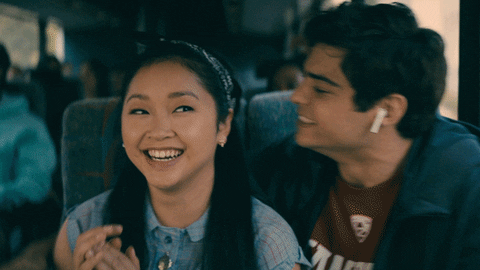
Alright, cards on the table: I never finished reading the book. I got bored a couple of pages in, so I just read up the summary on Wikipedia and called it a day.
Not gonna lie, I expected better from the movies. I loved the first movie; it was cute, it was fun, it hit all the right places. The second movie was… eh. Jordan Fisher is cute, so that’s a plus.
And then we got the third movie; the final in the To All the Boys I’ve Loved Before trilogy.
And it was somehow even worse.
Maybe I’m exaggerating. Despite its shortcomings in the plot and character development-related departments (the fact that Lara Jean wrote addresses for letters she never meant to send is something that will bother me on my deathbed), the movies have their merits. They’re cutesy and charming and enjoyable, overall; movie-LJ is sweet and unashamedly a girly-girl, which is a refreshing change from the #NotLikeOtherGirls, pick-me girls and bruh girls we had in loads of other YA movies growing up. Peter’s pretty cute, too; he’s not a possessive freak like so many other love interests (The Kissing Booth, After, Anna and the French Kiss), and his and Lara Jean’s dynamic is cute, too. Not to mention- we finally have an Asian lead whose Asian-ness isn’t the whole focus of the story!
Again, maybe I’m being extra with all this. The series is, at its core, solely for entertainment purposes. Not every piece of media has to have an underlying message and you shouldn’t need to read between every goddamn line to find something worthy of enjoying. They’re certainly helpful for whiling away a couple of hours; perfect for bingeing with a pint of ice cream in hand, and all of this is in good fun.
Also, it goes without saying, but: spoilers ahead.
The film beings with Lara Jean scribbling a postcard to Peter while she’s in Korea with her family. The inclusion of that little snapshot of Asian culture made me so happy- seriously, fuck everyone who says diversity in media doesn’t matter. I’m not even Korean, and I was overjoyed at seeing a couple of scenes just from the same continent I’m on. The K-pop music in the background was a fun touch, too (although all Korean music isn’t K-pop, but that’s a rant for another day).
(Also: Blackpink has so many more suitable songs than Pretty Savage that go with the theme of the movies. Kill This Love in the second movie while Lara Jean is getting ready to go to her boyfriend’s match is bad enough- they’re supposed to be in love in that scene, goddammit.)
One thing that bothered me throughout the movies is how obviously non-Korean Lara Jean and Margot look. It’s like whoever chose the cast went for any random Asian- Lana’s Vietnamese and Janel Parrish is half-Chinese, and it’s so obvious. You seriously couldn’t find two Korean-Americans who even vaguely resembled each other so they could pass for sisters? The actresses do a stunning job and I don’t want to shit on them, but I just wish they didn’t go with the ‘all Asians look the same, what’s the difference?’ mindset.
Also, a nitpicky thing I’ve noticed in movies with characters who read a lot: no one holds their books up while they’re reading. Your arms start to cramp, which is why you keep your book in your lap while you’re reading, or you rest on your belly and hold the book in front of you. My spine and shoulders didn’t suffer years of torture as a chronic reader for you to include characters who hold their books up while reading.
A major gripe I have with Always and Forever, Lara Jean is how the characters are almost jarringly out of character- not from the books, but from the two previous movies, too. Lara Jean didn’t have much of a character to begin with, so I can’t say much about her (she dissed Oasis at one point; it’s okay for me to be mean to her), but the rest of them are either caricatures of themselves or just totally different people.
Movie Peter >>> Book Peter. He’s almost too perfect (except for the fact that he unironically loves The Fast and the Furious, which… ew), almost too much of the ideal boyfriend. Not that my perpetually single arse would know. How do boyfriends even work? I wouldn’t know the first thing to do with one; how often should you feed it? Do you need to take it on walks?
(In the notes I’ve written towards the end of the film, I’ve complained about Peter being immature and making Lara Jean feel bad about following her dream to go to NYU. He confuses me.)
Not to mention how distractingly adorable Noah Centineo is from some angles and under certain lighting conditions (other times, he reminds me of the human version of Shrek and that bothered me). King of weird Tweets and Instagram captions though he may be, he’s got a really nice smile, and his gravelly voice is both parts sexy and disturbing.
But I digress.
I’ll never forgive the directors for what they did to Kitty and Chris- two of my favorite characters, from both the books and the movies. Kitty’s annoying to the point of being borderline unlikeable- gone is the occasionally snarky comic relief we all came to love; in her place is an annoying brat whose every line comes out forced. Also, making soap is fun; fuck you, Kitty.
Chris is essentially Dixie D’Amelio’s character from that TikToker Grey’s Anatomy ripoff; the main character in One Direction fanfiction from 2012 who doesn’t want to go to the concert but her best friend gets a ticket for her so she can’t bail but Harry Styles sees her in the crowd and falls in love at first sight and 50k of mutual pining and misunderstandings late, they get together. She’s cynical and snarky and hates capitalism and consumerism and prom (because of course she does), but secretly, she’s into it (because of course she is). My guess is that she’s there to appease all the arseholes (including myself) who accused the characters of being too one-dimensional, but it seems too out of place in a movie that doesn’t have much plot to begin with.
I really, really hate how Lucas was done dirty- throughout every single movie. Of course, it’s Lara Jean’s story so not every side character has to be fully fleshed out- but you’d think three. entire. movies. would be enough to give Lucas a bigger role than the GBF and the token black guy for the diversity brownie points. Every single time Lucas shows up, it’s to push Lara Jean and Peter’s story forward. I would’ve liked to see a romance for him pushed forward instead one for Chris- especially because he says, at one point in a previous movie, that it’s hard to find other gay boys, so it would’ve been sweet to see him find love- and Chris’s character arc could’ve been focused on reconciling with Genevieve. Instead, we see the OG Reggie from Riverdale be the one to show Chris the bright side of monogamy, and Lucas gets a date to prom as an afterthought (another darkskin black dude, so no one thinks the film is racist).
Genevieve’s character in this movie gives me whiplash. Look, I’m all for girls supporting girls- healthy female relationships are something way too many YA movies lack- but she goes from bitch queen extraordinaire to friendly the moment the next scene calls for it. Her character isn’t consistent. A redemption arc should be executed cleanly and believably; you can’t have a character be a total prick one moment and then suddenly be, “Hey, if you get into NYU, let me know,” the next.
And Genevieve’s still an arsehole to Chris; at one point, in NYC, while they’re at the NYU campus grounds (I knew that Lara Jean was going to go to NYU the moment she saw all the banners; I fucking called it), Genevieve tells Chris, “University is for people who actually have a future,” and I recoiled. I’m not the nicest of people and yet that was going too far. Chris doesn’t hesitate to shoot back a, “You peaked in high school,”, but still. Y i k e s. You can’t convince me someone’s turned over a new leaf when they say something like that.
Lara Jean’s dad (forgot his name; gonna call him Dr. Covey) is as unremarkable as ever, and his new wife (forgot her name, too… Trisha? Trina? Eh, something like that) is… unsettling. I mean, I get that they’re all loved up and twitterpatted, but there’s something about all the smiling they’ve got going on that chills me to the bone.
Also, Trisha/Trina kinda looks like TikTok’s ThatVeganTeacher and it bothers me.
Another huge problem with this movie even being made is that the series never had enough plot to continue onto a trilogy. Lara Jean’s letters are what the plots of the first and second movies revolve around; the third only mentions them in passing. The final love letter from Peter was a cute callback, but there’s a massive continuity issue with the first two movies and this last one- both character and plot-wise.
Maybe I’m not articulating this clearly enough, so I’ll use an example: take Harry Potter, for example. Harry’s main goal throughout the series is defeating Voldemort. And it takes all seven books for him to get there, to finally achieve this.
Lara Jean’s goal in the first movie changes midway; from keeping up the façade with Peter so she can avoid the crap with the rest of the letters getting out, to making her fake relationship real. It forms a bridge with the second movie; the letter that went out to John Ambrose, and her dithering between Peter and perfection (I’m not sorry). But what does the third movie have to do with any of this?
There were way too many music montages. You couldn’t go five minutes without a random pop song playing in the background, and it was annoying as hell. Don’t Look Back in Anger was w a s t e d on this stupid film. The artsy scenery shots were even worse- no, I don’t give a fuck about the New York skyline or a bird’s eye view of whatever vehicle Lara Jean is in. A few shots of Seoul would’ve sufficed; the rest was overkill. This movie is way too damn long already (almost 2 entire hours!!!); cut out a couple of those. No one cares.
I thought they’d pull the whole Aladdin trope with character-A-keeps-trying-to-tell-character-B-the-truth-about-a-lie-B-believes-in-about-A-but-B-keeps-interrupting, but Lara Jean (typing her name out is annoying, why couldn’t she have a single name, like both of her sisters?) comes clean earlier than I expected. Peter’s reaction about LJ not getting into Stanford is… uncharacteristically mature? No “Why did you lie to me?”, no accusations, not an ounce of betrayal. Which I did not expect from a guy who’s a little bitch for the greater part of book one (I really don’t like Book Peter, in case you couldn’t tell). I know fuck-all about book three’s Peter, so I can’t tell if he really did adopt this mature, well-adjusted persona, or the movie did it to make Peter seem like less of a dick (like they did it with the sextape-that-wasn’t-a-sextape in the first installment).
On a sidenote, how do these main characters in YA books get into really good colleges with zero to no visible effort? These arseholes fuck around for the entirety of the story and have way too much going on to actually do schoolwork, but they waltz into Ivy Leagues at the end. And apparently, I’m not the only one bothered by this.
There’s something to be said about how the movies don’t really sexualize minors (characters who are minors, to be fair. None of the MCs look anything like teenagers), though. It’s almost weird to see them not getting drunk and partying and having sex all the time. Maybe that’s why Lara Jean trying to get her hand on Peter’s dick felt so stilted and awkward (I cringed so hard when she kept trying to touch him and he kept pushing her hand away, holy shit).
And the kissing. It’s to be expected from a romance film, but there was so. Much. Kissing.
The amount of product placements (… actually, I could count only two: Apple and a pair of Beats headphones Lara Jean puts on at one point, but the movie shoved so many iPhones in my face that I’m obligated to exaggerate) would’ve made anti-capitalist Chris mad.
I’m guessing this all takes place in a parallel universe, sans the coronavirus. Still, being in quarantine this past year and being socially awkward for every other one, it was agonizing seeing everyone so close together in NYC. When Peter kissed the ball (lol) (I have the sense of humor of a straight boy in middle school, don’t judge me) when him and Lara Jean go bowling, I had a visceral reaction. And what are the odds of Peter meeting his estranged dad at the very same bowling alley?
Speaking of Peter’s daddy issues (I’ve written “Hardin but diluted” in my notes; I watched this movie at, like, 1 AM; I’m not entirely sure what was going through my head at that point)- I hated how they guilt-tripped Peter into giving his father another chance. In the wise words of Hannah Montana, everybody makes mistakes- but leaving your wife and two kids for another woman is pretty far from a little oopsie on Mr. Kavinsky’s part. I don’t blame Peter for hating him, and I’m not in a place to judge whether Mr. Kavinsky (does he get a first name?) should be forgiven or not, but I feel like they let him off too easy and made Peter seem like a misunderstood teenager with anger issues for not accepting Mr. Kavinsky’s (crappy) apology at once.
And it adds nothing to the story at all; Mr. Kavinsky peaces out after having one (01) coffee with his firstborn, and he’s never seen again. If you’re going to introduce a subplot, make it tie into the main storyline- the very least you could do is make it an important enough part of the story to have more than 10 minutes of the run time. It makes no sense as to why they’d bring up Peter’s dad in this last film, when he’s already gone through two perfectly fine. I guess it was a ‘tying everything up’ part… even though no one cared.
Lara Jean’s handwriting is surprisingly ugly for someone who’s written that many love letters. And her styling took a definite nosedive; her outfits in the first movie were so effing cute, but now they’re just… meh.
There are so many conversations and lines that the writers must’ve thought sounded good enough for someone to type out the quote in curly font and slap it on a screenshot from the movie to post on Instagram, but when it comes to the actual delivery, they just sounded… weird.
Peter says one time near the beginning of the film, “You know what I’m looking forward to the most in college? Never having to say goodnight,” because he expects him and Lara Jean to get into the same college.
But I guess the word they should’ve used was ‘good-bye’, because this just makes him sound stupid.
At one point, Lara Jean asks Kitty how much Kitty’s gonna miss her when she goes off to college, and Kitty says, “A four.” Later on, she confesses, “I’m gonna miss you a twelve, Lara Jean,” and all I could think was, “But we’re endgame, Archie!”
(In hindsight, I probably shouldn’t let people know I’ve watched Riverdale; it lessons my credibility.)
Still, there remains some good to be found: all the baked goods looked very delicious and made me crave chocolate chip cookies. Peter wearing the socks Lara Jean gifted him at the beginning of the movie was a cute gesture, and Lara Jean giving Peter her teal hatbox? The one she kept her love letters in? Was so? Cute? Help?
And hey, it’s a cliché that’s been done to death, but I’m always a sucker for that part in movies where the girl walks down the stairs in a pretty dress with her hand on the banister and the boy turns around and his mouth falls open and all he can say is, “Wow,”- and this film did not disappoint! Not to mention how cute both Lara Jean’s and Chris’s prom dresses were.
Dr. Covey and Trisha/Trina’s wedding was cute, too- I struggled to decide whether Kitty wearing a necklace that says ‘feminist’ and a tux is a bit too on-the-nose, but I’ve decided that it’s nothing to get my knickers all in a twist about (for clarification: it’s not the necklace or the crossdressing that made me debate this; I just wish they didn’t make a big deal out of it- I wish they didn’t have Kitty and Lara Jean get into an argument about her not wearing a dress, if that makes sense?).
And the final letter- the one from Peter to Lara Jean- I ate that shit up; it was so, so, so cute.
In conclusion (why is it so easy for me to crank out 3k about my thoughts on a Netflix movie and yet when it comes to English Lit. at school, I’d stare at a blank sheet of foolscap for ages?), did I enjoy the movie? Not really. There were parts of it that I liked, but it was overall too boring and I kept wishing I’d watched the new SKZ Code episode instead every few minutes.
But that doesn’t mean that it was bad. I kinda feel a little sad, actually, now that Lara Jean and Peter’s story has come to a close; To All the Boys I’ve Loved Before, the first movie, is one of my favorites, and bitch though I might about them, the kinda grew on me… like an innocent plant, at first, but then like a fungus. Not a parasitic fungus, just not mutualistic, either… kind of like a commensal.
Maybe I should stop with the biology similes.
#to all the boys ive loved before movie#to all the boys netflix#to all the boys ps i still love you#to all the boys i've loved before#to all the boys always and forever#Jenny Han#lara jean covey#peter kavinsky#asian#books#book review#film#film review#always and forever#lana condor#noah centineo#jordan fisher#john ambrose mcclaren#margot covey#kitty covey#netflix#chicklit#chick flick#romance#YA#young adult#teen fiction
5 notes
·
View notes
Text
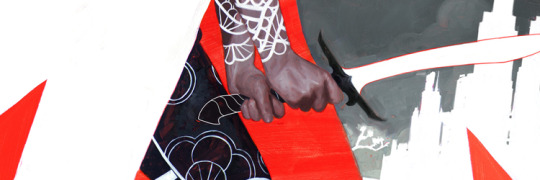
REVIEW // Seven Blades in Black (The Grave of Empires #1) by Sam Sykes
★☆☆☆☆
Disclaimer: while I was reading this book, I found out that Sam Sykes has been accused by numerous women of sexual harassment. You can find more information about it below: - a post listing several accusations of misconduct - twitter post responding to the situation - one of the accusations against Sam Sykes - his quickly-deleted apology Suffice to say, I have no intention of continuing this series or reading any more of his books.
I have a lot to say about this novel, so I’ll begin by making a quick bullet point list outlining what I liked and disliked:
Liked:
Cavric <3
Lisette deserved better
Some interesting concepts in the world building
Disliked:
Sal as a narrator
Sal as an antihero
Sal as a person in general
Writing style
Constant interruptions
Meandering narrative
The “narrator knows something but the writer avoids revealing it until the end for the drama” trope
This is a Big Tough World and Nobody Gets To Be Happy
Lesbians written by a man who harasses women
Unnecessarily long
// image: official cover art Jeremy Wilson //
Let’s begin with the full review by starting with the (few) positives, shall we?
First and foremost, I genuinely enjoyed Cavric and Lisette. It is unfortunate that they had to deal with Sal for the entirety of the novel, but we’ll get to her later. If this book had been a buddy adventure with these two, in which Cavric slowly shows Lisette that she is in a toxic relationships and deserves to move on and find someone better for herself, I probably would have enjoyed it a lot more. Secondly (and finally), Sykes introduced some genuinely interesting world building. The background of the Empire and the Scar was fascinating to read, but unfortunately did not save the rest of this mess.
Alright now let’s rant.
I have 35 notes and 52 highlights from this book, so this might get block quote heavy. (Go check out my notes if you want to see me slowly lose my sanity)
Sal is awful. I know she’s meant to be awful, but she’s not flawed in the way that I think Sykes was trying to write her. I believe she was intended to be a scruffy, lovable antihero who fought her way through a dangerous landscape with her sharp blade and even sharper tongue. A girl who had wrongs committed against her in the past, who did terrible things but is now on the road to an epic redemption arc. She shoots bad guys, she says f*ck and a*s a lot, and she is morally complex. That’s the character that Sykes was trying to make. The one he created, however, is a genuinely terrible person who I had no desire to see come out on top. I have a myriad of issues with her, but let’s outline a couple below: (1) She is incredibly toxic for Lisette. Am I getting a bit too heated about a fictional relationship? Sure. Was I happy to read a toxic lesbian romance written by a man who sexually harasses women? Nope. It kind of grossed me out, actually. Anyway, let me give you a run down of their relationship. Sal arrives. Sal and Lisette sleep together. Sal asks Lisette to give her weapons and or fix things for her. Sal sneaks away, telling herself no good will come of this relationship and they will only cause each other pain. Sal needs something. Sal comes back. Repeat over and over. She constantly says, throughout the book, that it would be better if they just left each other, but then again Sal is the one who goes back to Lisette over and over, causing her renewed heartbreak. I don’t know if Sykes thought that simply making Sal aware of how terrible this behavior was was enough, but it just made me incredibly frustrated. At one point Sal says:
”Intellect like hers is a curse. The more you understand of the world, the less of it you trust.”
Yes, Sal, that’s what’s giving her trust issues. Her intelligence. Nice. By the end of the book, it seems that they are on the mend-I’m getting end-game vibes from these two. But honestly, I spent the entire time thinking that Lisette deserved so much better than Sal. Like literally a chicken would have provided healthier companionship. I’ll end with this quote, in which Lisette outlines perfectly why Sal does not deserve her:
“What am I doing wrong that you’d choose this over me?”
(2) Sal is annoying. Really, really annoying. I kid you not, half of this book is made up of Sal’s snarky comments. She is badass. She has a gun. She is an outlaw. And she will never, EVER shut up about it. Imagine a quirky line after an otherwise dark or action-packed sequence. Funny, right? Might break the tension, make the narrator more endearing, etc. Now imagine one such line after every. Single. Paragraph. Picture a violent battle scene where the protagonist is fighting for their lives against a ruthless opponent. Now insert a snarky comment after every other paragraph and watch the entire flow of the scene fall apart with constant interruptions. That’s what this book is-which brings me to my next point.
The writing isn’t great. There are constant interruptions, meandering narratives, and the trope that haunts me in nearly every dark fantasy novel I read-This is a Big Tough World and Nobody Gets To Be Happy-is shoved repeatedly in your face. Let’s start with the interruptions, returning to my previous point (ie. Sal never shuts up), by looking at this sequence:
I followed the shrieking wind. I had come here prepared for something bad. But I wasn’t prepared for just how bad it was. I rounded the corner of the hall, came out atop a battlement. The wind struck me with a screaming gale, forcing me to shield my face and cling to the stone for purchase. My eyes squinted against the harshness of the light, the kind of offensive pale you only see in your nightmares. And through them, I could see the bowed shapes of towers sagging, the flayed flesh of banners whipping in a wind that wouldn’t cease, the shadows of figures frozen in a death that had brought no peace. And I knew where I was. There was nothing that had ever made Fort Dogsjaw special. It had never been crucial for defense, never a hub for trade, it hadn’t even been named for anything special—the commander just liked the sound of it. It lived its whole life a regular, boring Imperial fort on the edge of the Husks. It only got important at the time of its death. Over three hundred mages and a few thousand regulars had assembled here in one day—some to receive assignments, some to man the garrison, some to head back to Cathama on leave. They had been laughing, cursing, drinking when the news came that the new Emperor of Cathama was a nul, born with no magic. And then there had been a moment of silence.
I’ve bolded for emphasis, but do you see what I’m talking about? The paragraph-line-paragraph-line format is so annoying to read, I had to put the book down at certain points because of how frustrated I got. It interrupted the forward movement of the story, making the novel drag on and on.
You know what else makes this feel like the nightmare version of the Never-ending Story? The page count. I don’t mind long books-The Priory of the Orange Tree is one of my favorite reads so far this year, and it’s longer than this one-but they have to have a reason for being so hefty. As I mentioned earlier, a considerable chunk of Seven Blades of Black is Sal making her awful, awful, AWFUL asides. I literally cannot express how much I despise those comments. Okay, let’s move on before I get hung up on THOSE STUPID COM-*cough*
This novel is marred by unnecessary lines and a meandering plot that drag out the story. One instance is the amount of times that Sal is a second away from killing someone and, for some reason (usually not a good one), fails in her goal. She places a gun at someone’s head and goes through a whole monologue in her head until the person miraculously escapes. This type of subversion of expectations is fine every once in a while, but if you are going to build up to a crucial moment and then take away the satisfaction of the defeat of some villain (or mini-boss, as many of the antagonists in this book feel like), then you need to have a good reason for doing it upwards of twenty times in ONE BOOK. Secondly, if you spend almost the entire novel setting up more and more villains and stressing how hard they are to kill and how dangerous their powers are (and presenting them separately and isolated), then when you have them all in one place at the end, at which point the protagonists starts going through them like a plate of french fries at a seagull convention, then you’re kind of taking away the satisfaction of the death. Somehow, this book manages to do both. We are constantly teased with almost-kills, then at the end Sal just blows through everyone in five seconds, easy-peasy.
I’m almost done, I swear-just two more gripes.
So much of the tension of this book rests on the fact that Sal, our narrator and our main viewpoint into the story, knows something that we don’t. I’ll be upfront with you-I hate this trope. If our POV character, the one whose mind we are in constantly, is entirely aware of something that happened before the beginning of the novel, and the author keeps from revealing that something for the entirety of the story solely to add drama, then I will not be a happy reader. Where is the logic. We are in this person’s mind. Just show us already and add tension ELSEWHERE.
And FINALLY (as painful as it was for you to read this, it was worse for me to write it), another issue I have with a lot of dark fantasy (see my review of Nevernight) is that the author really, really wants us to know that this is an incredibly dangerous and dark world by filling it to the brim with edge lord narrators, Big Guns, and, usually, women being harrased-because why not force all your female readers to constantly have to read about women getting assaulted? Apart from Sal’s 300,000 comments explaining to us that she is an asshole, that the Scar is Dangerous, and that she has Killed A Lot of People, we as readers must sit through hundreds of lines of dialogue and exposition that beat us over the head with the fact that this is DARK fantasy. This isn’t your nice little fairy adventure-no sir. Here we have Swear Words and Violence and Men writing Queer Women. To emphasize just how blatant Sykes is with the dark part of dark fantasy, let me tell you about an exchange Sal has with three old ladies who run a criminal empire. In the 2-3 pages that these women appear in, we are told, in some form or other, that they are grandmas who kill people, a grand total of, I kid you not, ELEVEN TIMES. Here are some excerpts from that whole situation:
”“Now, now.” Yoc, old and white haired and sweet as a grandmother—if that grandmother also had people killed on the regular—smiled at me. “I’m sure she has a good reason for being here.” She raised the hand that had signed the contracts that had killed a thousand men and women and took up her whiskey glass. “After all, I’m sure she knows how much we don’t like having our game interrupted.”” *I counted this as one since it’s in the same exchange but technically he mentions it TWICE
”…one didn’t waste the Three’s time if one didn’t want to end up with their teeth pried out.”
”How often do you meet the three old ladies who have people killed for money?”
”I said we should kill her on principle.”
”“But you know how many orphans I’ve made, don’t you, dear?””
”“He’s not so unlike us, is he? A murderer, yes. A monster to some. But, at his heart, a businessman.”
”Theirs were the hands that signed a thousand death contracts a year.”
”When they could be bothered to look up from their game, they decided who lived and died with a stroke of their pen.”
”At a word, they could have me stripped, tied, tortured, and cut up…”
”the Three don’t lie. Their assassins do. Their thieves do. But they don’t.”
”I had already wasted their time and I knew the Three were being generous just letting me fuck off instead of having me killed for the effort.”
TL;DR - Sal is annoying, Sykes is a bad writer, and Someone should have stopped me from reading this book
#bookblr#bookish#bookworm#goodreads#book review#review#a duck with a book#ya#ya fantasy#young adult#fantasy#lgbtq#lgbt#f/f#seven blades i black#sam sykes#grave of empires#jeremy wilson#onestar#star#cover artist
2 notes
·
View notes
Text
Favorite Media of 2020!
There was a large swathe of this year during which I was unable to concentrate on reading (as there probably was for a lot of other typically-frequent readers), so, as a result, I ended up listening to way more podcasts and watching way more TV shows. Not a bad thing, but boy did I read way less books than usual.
However, for the first time in a while, the amount of fiction I read was about equal with the amount of nonfiction I read. Last year’s reading resolution was to read more fiction, so...success??
I did read a lot of phenomenal fiction when I had the energy to do so this year.
Books - Fiction
The Martian - Andy Weir
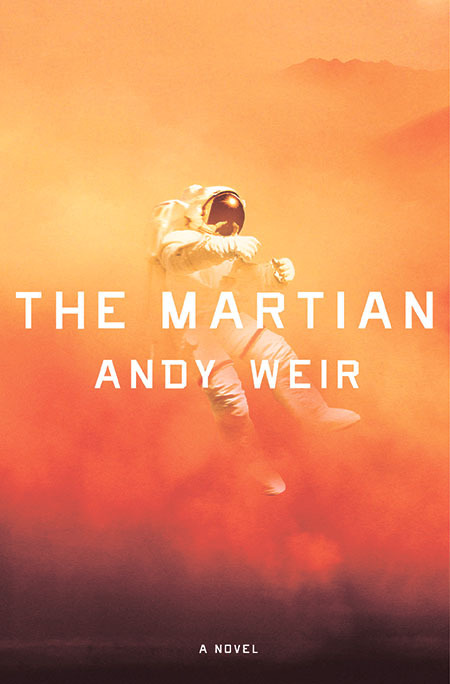
This book is the hardest of the hard sci fi I think I’ve ever read. Every single aspect of it is minutely researched and calculated. The author literally wrote equations to write this book. The science is insanely impressive and yet...it never loses its sense of humor or humanity in the mix. In fact, they’re the thing that drives the entire story.
Warlock Holmes - G. S. Denning
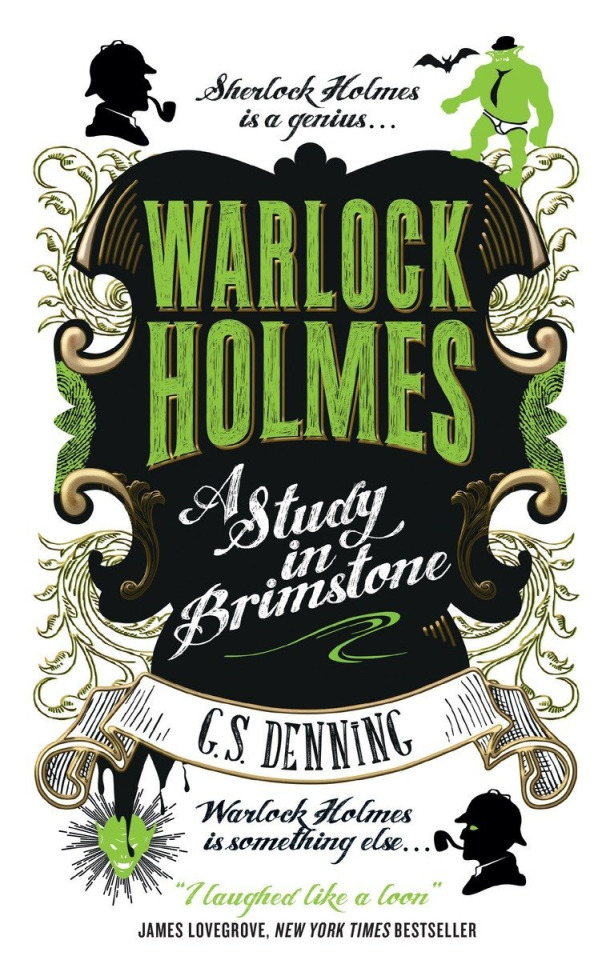
Way early in the year I was strolling down the fantasy aisle at the library, when this cover caught my eye. I took one look at it, went “oh, this looks silly” and...proceeded to devour the entire series in a matter of weeks.
It is very silly. Especially when it’s pointing out something that was silly in the original. There’s something so satisfying about Watson immediately answering Holmes with the correct number of steps in their flat when he’s trying to make his point about how most people don’t pay attention to things like that.
World War Z - Max Brooks
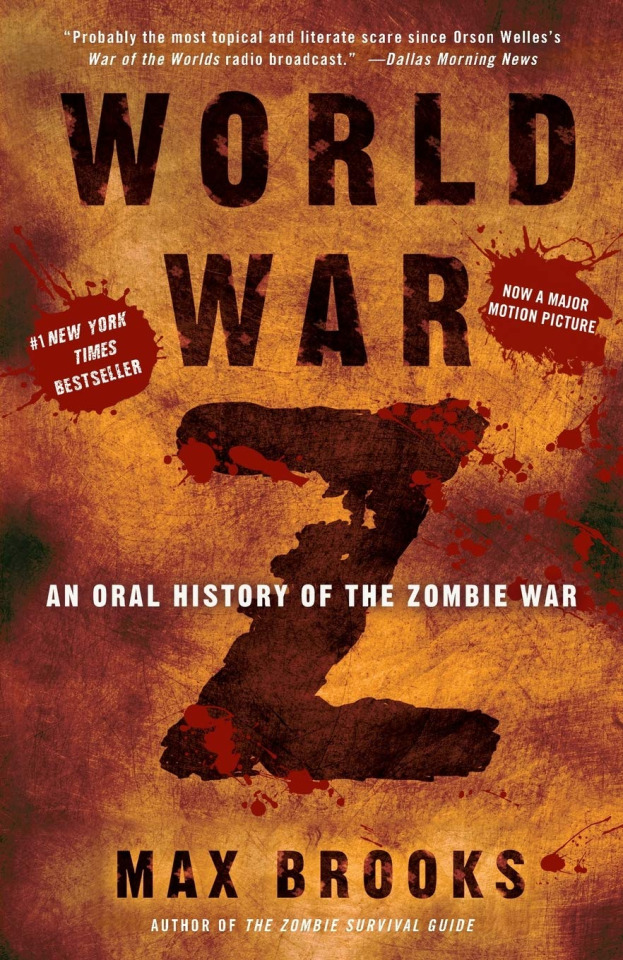
Every single scenario in here could easily support an entire book. A park ranger whose job it is to contain the yearly zombie spring thaw? HECK YES. I’d read tens of thousands of words about that. A Chinese admiral who defaults, steals the government’s premier submarine, loads it up with the families of his underlings and takes to the sea for years to live in the maritime economy that has sprung up in a world where everyone is trying to escape the shore? That could be an entire movie on its own.
Every chapter was more creative than the last and as a huge worldbuilding fan, this book was so, so fun.
An Unkindness of Ghosts - Rivers Solomon
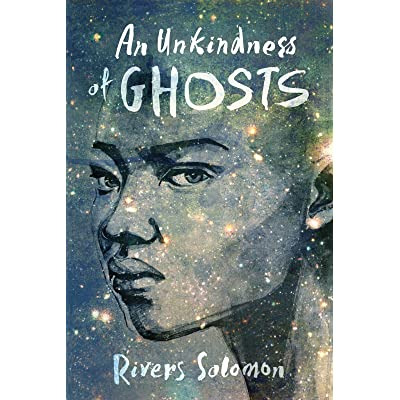
In which a queer, neurodivergent protagonist solves a mystery on a spaceship which is a microcosm of antebellum era politics! This had a beautiful, mysterious, wonder-inducing writing style and it was a joy to peer into the wildly differing minds of every single character.
Books - Nonfiction
Underland - Robert MacFarlane
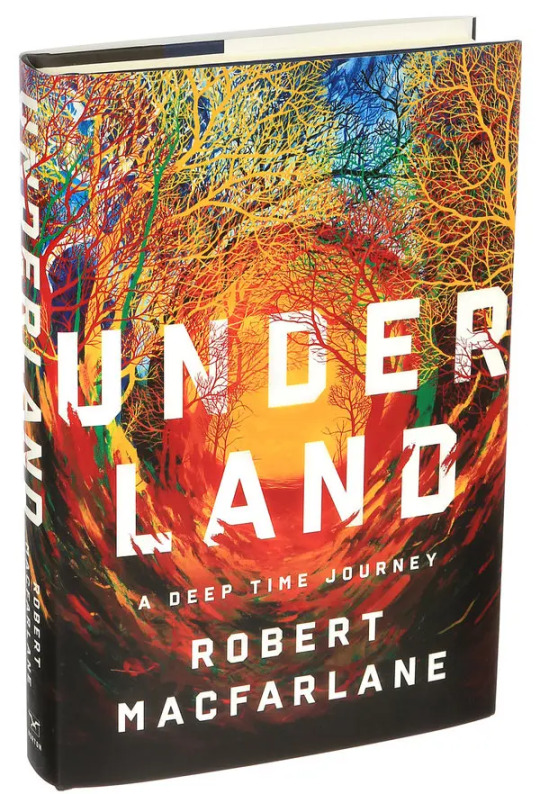
In every chapter, the author visits a different hole. Basically.
It’s an exploration of caves, catacombs, mines, nuclear waste facilities and the hidden underbelly of every forest. It was fascinating. And fundamentally changed how I look at time.
Rejected Princesses - Jason Porath
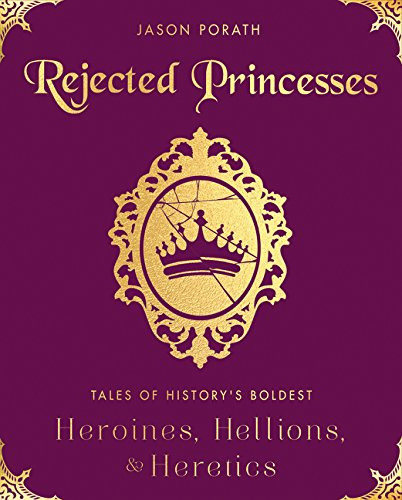
After years of having enjoyed the web entries, I finally got my hands on the first book and was not disappointed.
There are the more entertaining entries, of course and the art is as charming as always, but what struck me the most were the more difficult stories. The deeper you go into this book, the more horrific it gets. The author does not hold back on the indignities suffered by the historical figures he writes about. It’s terrible...but also very, very illuminating.
The Gift of Fear - Gavin De Becker
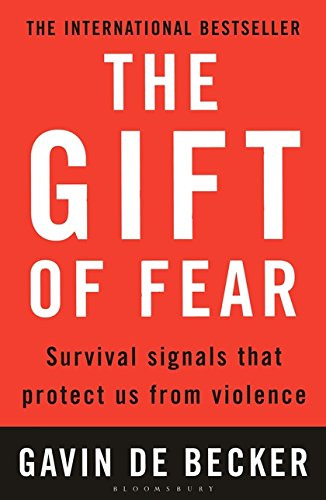
This book - while maintaining all the essential information in it - could be pared down to one sentence in a sea of blank pages and that sentence would be: trust your instincts. End of story.
But in a world where instincts are either customarily suppressed or going haywire, it’s not quite that easy, which is why I’m glad there is more to the book.
I picked it up thinking “ha ha, betcha can’t help a person with anxiety who fears all the time already” and...what it actually ended up doing was giving me the tools to differentiate between real fear and unfounded fear. And did help with the anxiety quite a bit.
Fanfiction
Watch Over Me - cakeisatruth
A Bioshock fic from the point of view of a little sister who is learning how to trust and be an ordinary child again. Dark and sweet. An excellent combo.
All That is Visible - Ultima_Thule
An exploration of a minor character in a well researched historical context? That’s my jam! How did they know?? A Tron fic about what it’s like to be a female programmer in the 70s.
Graphic Novels
The Adventure Zone - McElroys + Carey Pietsch
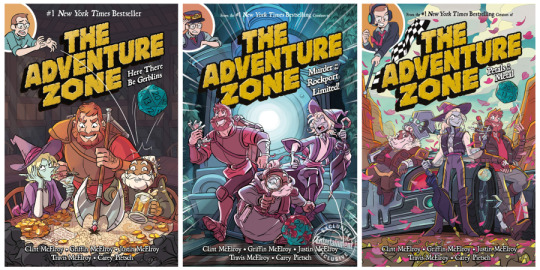
Yesssssssss! It was a running-to-the-library type event whenever my library got a new volume in. The jokes are so good, the art is so lively and the ways in which they added the details that the podcast couldn’t necessarily get across is *mwah*
Trail of Blood - Shuuzou Oshimi
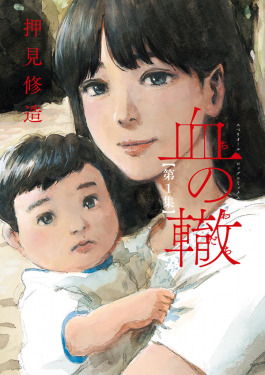
Hoooooooly shit, the art style of this one!! It’s beautifully detailed and expressive, sure, but the real draw for me was how it changes with the emotional state of the main character. There’s this sequence in which he’s consumed with anxiety at school and all of his classmates become blurry and unfocused, until they can’t be recognized as humans at all, that particularly sticks with me.
It’s a horror story about a kid who witnesses his loving mother push his cousin off a cliff for seemingly no reason and is then obligated by her to keep the secret, which is eating him from the inside out. It’s so good, guys, please read it.
Level Up - Gene Lien Yang/Thien Pham
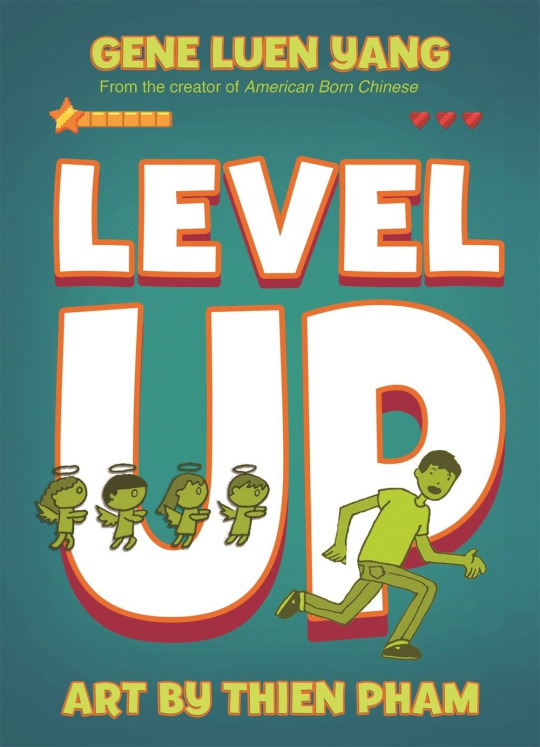
A story about a kid who is haunted by his late father’s desire for him to become a gastroenterologist. It’s funny and touching and the ending gave me what I can only describe as a feeling of exhilaration. Y’know that feeling when something unexpected but not out of left field, perfectly in tune with the narrative arc and gut bustingly funny happens, all in the same panel? That one.
Film
Searching
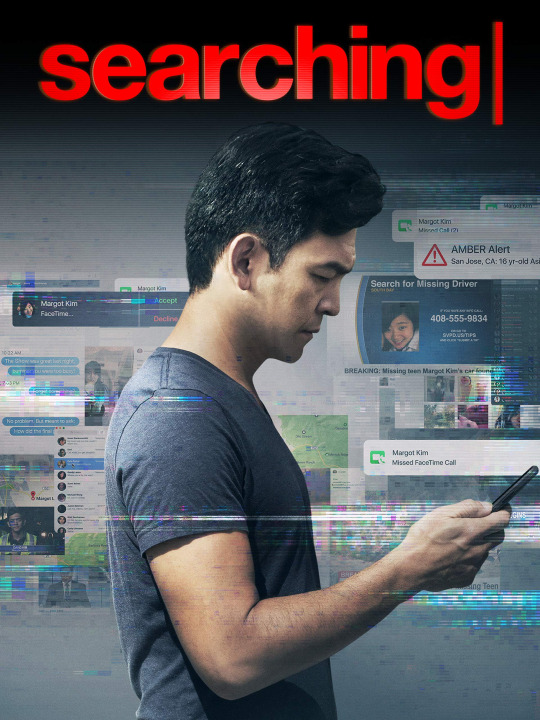
This is a fairly standard thriller about a dad trying to find out what happened to his missing daughter. It’s also found footage...but not in the usual way, which was what made it so compelling to me. It’s told through the dad’s phone calls, google searches, social media interactions, news footage, security cameras and webcams. It was such a cool way to tell a story.
Train to Busan
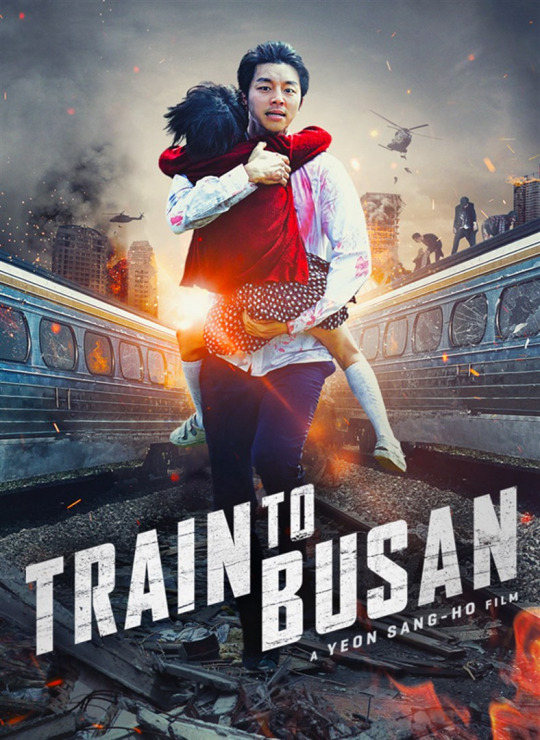
There’s a lot that’s already been said about this movie and I don’t think there’s much more I can meaningfully add to that. Suffice to say that ya gotta take care of each other if you’re going to survive a zombie apocalypse!!
TV Series
My Brother’s Husband
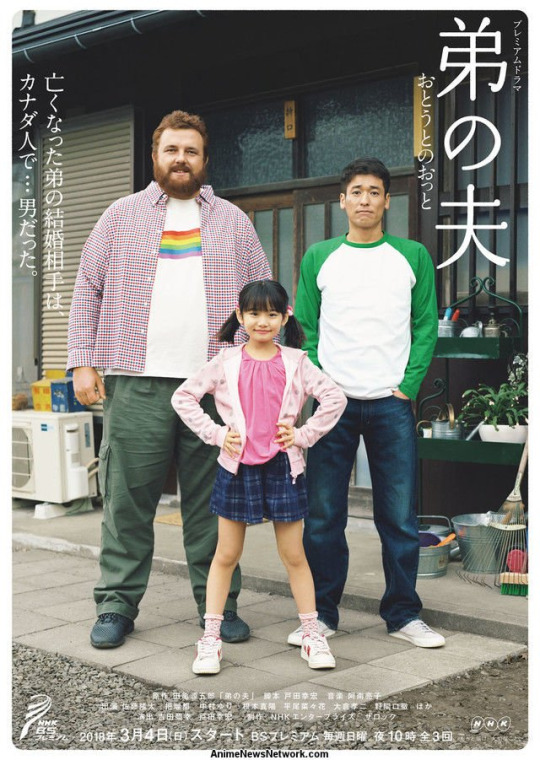
As close to a perfect adaptation as a person can get (barring the entire conversation in English which was...oof). I was so happy when they took it a step further and showed Kana and Yaichi actually getting to meet Mike’s family.
Zumbo’s Just Desserts
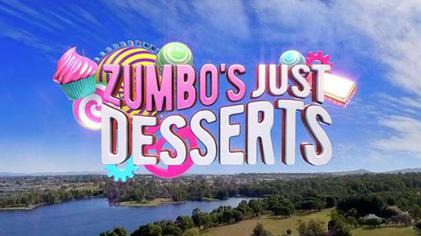
I watched a lot of baking shows this year. Like...a lot. They were my much-needed comfort viewing for the year and this one was my favorite, even over The Great British Baking Show (which I LOVE). Why? Because the pastry chef for whom it’s named makes such bizarre and wonderful desserts and fosters an environment in which the competitors do the same. I’ve never seen anything like a lot of the desserts that make an appearance on this show. Every single episode was an awesome surprise and so help me, this show had better get a third season.
She-ra and the Princesses of Power
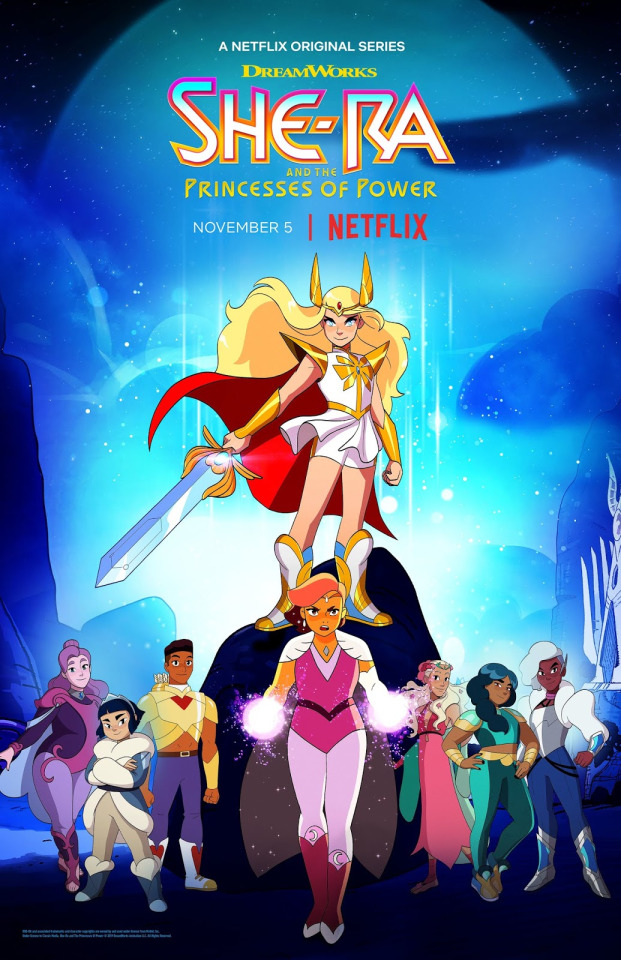
There’s also a lot that’s been said about this one, so I won’t say much more. Suffice to say: DAMN. That’s how you do an 80s toy tie-in cartoon remake.
Infinity Train
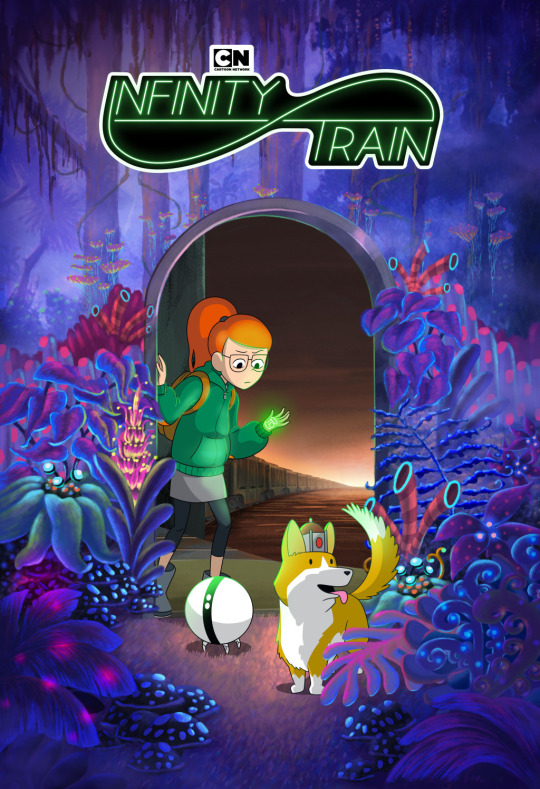
This show’s premise is probably the most unique I’ve seen in recent years. Its balance of comedy, horror and existential dread is also *mwah* I also love how much it trusts the viewer to figure things out on their own.
Primal
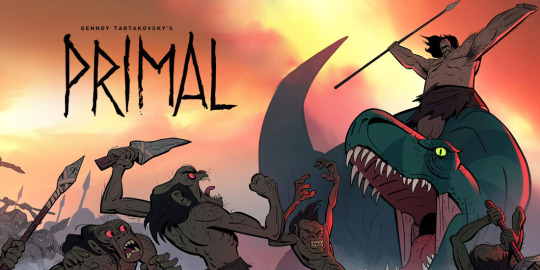
A late entry sliding in before the year ends! I finally got to watch the second half of the first season last weekend and it was EXCELLENT. The pacing, the brutal fight scenes, the adorable dinosaur antics, the animation, the quiet moments - *mwah-mwah-mwah-mwah-mwah*
The most emotional moment for me was the part in which the protagonists watch, with sorrow, as the rabid dinosaur who’s been trying to kill them all night dies an excruciating death.
Also it sets up a fascinating new plotline right before ending in a cliffhanger!! Another one for the ‘had better get a next season’ list.
Games
Night in the Woods
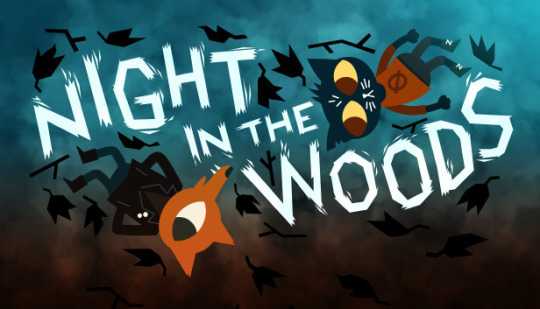
This is one that’s been on my to play list for a few years and I was so glad I finally got my hands on it. It’s like...The Millennial Experience (TM), the game. I felt so seen, playing it. The character writing was fantastic.
Prey
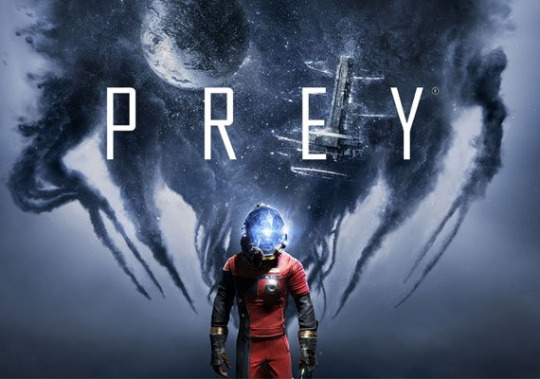
I don’t know why I put off finishing this for so long. I guess I wasn’t in the right alien killing headspace for a while?? Anyway, the setting is gorgeous, the alien biology is weird and cool, the ethics are delightfully murky and the interconnectedness of the station was really cool, especially in the OH SHIT moments at the end.
Podcasts
The Adventure Zone
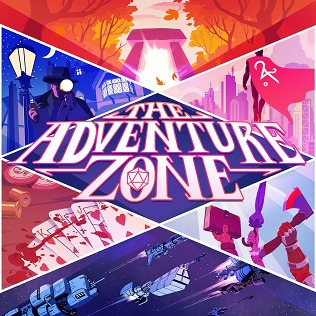
I tried to narrow this down to one favorite arc, but found that I couldn’t do it. I love Balance for its comedy and creative energy. I love Amnesty for its drama and acting. I am loving Graduation for the depth of its world and the way in which the real story behind everything that’s happened is slowly unfurling. It’s a good podcast all around.
The Magnus Archives
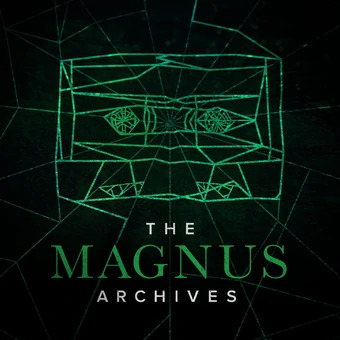
Who obsessively listened to every single season while playing Minecraft in about a month? Surely not me, nooooo. Of course not.
There’s also been a lot said on this one, so I’ll keep it brief. I’ve seen things in here that I haven’t really seen elsewhere in horror. My particular favorites were the creepy psychiatric hospital in which the horror comes not from the patients, but from the denial of the doctor to believe them about their mental illnesses and every single thing related to the Anthropocene. The one with the Amazonian village made out of trash - CHILLS.
#tma#taz#prey 2017#night in the woods#infinity train#warlock holmes#she-ra#zumbo's just desserts#a thought
10 notes
·
View notes
Text
OUAT AND ME: IN WONDERLAND
Story - Because this spin-off series only lasted for one season's worth of 13 episodes, its story is simply the Wonderland Saga and nothing else beyond that, which is for the best given that the story reaches far too complete an ending for anything beyond it to make any sense. The story is about Alice and what transpired after she returned from her original journey through Wonderland as a little girl, leading up to her romance with a young genie named Cyrus as a teenager, their tragic separation, her commitment to a mental institution, and her return to Wonderland in order to reunite with her lost love alongside her friend the Knave of Hearts, all while facing threats from the Red Queen and Jafar who seek to use Cyrus’ genie powers to break the laws of magic in order to accomplish their own secret goals.
The Wonderland Saga is as tight as tight can be, with one chief setting (Wonderland), a relatively small cast of characters, and a 4-episode beginning, 4-episode middle, and 5-episode end. Of course, this wouldn't matter if it wasn't an engaging story with enjoyable characters, but thankfully it very much is. This series is the brainchild of not just Adam Horowitz and Edward Kitsis, but also of Jane Espenson and Zack Estrin, and because of this fact combined with its limited length, it actually surpasses the original Once Upon a Time when you stack the two completed shows up against each other. Sometimes, less is more.
As I said, the story is divided into a clear-cut beginning, middle, and end. The beginning focuses on the early part of Alice and the Knave's journey and establishing who they are and what their deal is, while Jafar and the Red Queen's goals and motivations are kept enigmatic and Cyrus is trapped in a cage for the whole duration of the time. The middle lets Cyrus escape, sheds light on Jafar and the Red Queen's goals and motivations, and explores the darker sides of Alice and the Knave as we see just how badly their past traumas have affected them. And the end is all about the alliance of Alice, Cyrus, the Knave and the Red Queen as they fight Jafar and his new ally the Jabberwocky to decide the fate of Wonderland. It's here that all lingering questions are answered and all character arcs are fully completed.
As far as stories go, this is top tier OUAT. I think I like the Dark Curse and Neverland Sagas slightly more, but the Wonderland Saga comes in at an incredibly close third place.
Characters - There are less of them than in the main show, so this will be easy.
* We start with Alice, played by Sophie Lowe as a teenager and by pre-Stranger Things Millie Bobby Brown as a child. She is a wonderfully multi-faceted heroine, capable of great love and great hate, great kindness and great cruelty, great ingenuity and great gullibility, and always treading the line between holding to hope and giving into despair. While her romance with Cyrus is the focal point of the story, I love that it's not the only important aspect to her character. We also delve into her fractured relationship with her father; her initially unsteady but eventually rock solid friendship with Will; her hate, fear and distrust of Anastasia up until she finally sees the girl behind the queenly mask and how very much alike they truly are; and even her internal mental and emotional conflicts with herself on various matters that sometimes go external due to how Wonderland works. And no offense to Emma Swan, who is great in her prime, but I feel like Alice is ultimately the stronger and more likable lead.
* Cyrus really impresses me, because being the romantic male object of the heroine's attention and a guy who spends the entire first third of the story stuck in a cage, he could have very easily been a boring character. But very quickly, he shows that good looks and magic powers aren't all there is to him - this guy is smart. His cleverness and ingenuity that allows him to affect the plot even when inside his cage is something to behold, and he only gets better once he's free from his prison and gets to play off other characters with more frequency. Add to this a backstory where we see he used to be a selfish con artist, and it being his love for Alice that changed the selfish part while repurposing the con artist part for the cause of good, and you have a character you can enjoy and a couple you can root for.
* The show's breakout character, for better or for worse (no, it's definitely for worse, as we'll see in the next post) is the Knave of Hearts / Will Scarlet. Played excellently by Michael Socha, Will was formerly one of Robin Hood's Merry Men but is now an outlaw all to himself in Wonderland. He's sardonic and quippy, selfish and yet reliable at the same time, eerily muted in his emotions due to having his heart removed from his chest and yet clearly possessing deep feelings within his soul that occasionally bubble to the surface. We watch him go from an untrustworthy, cowardly cad who refuses to accept responsibility for anything to a brave and loyal friend who will sacrifice his own well-being for those he cares about. And his love story with Anastasia honestly steals the show from Alice and Cyrus', as it's full of betrayal and heartbreak and fights and truces and reconciliations before its happy ending, and that honestly feels more human than Alice and Cyrus' entirely plot-based separation.
* Speaking of the Red Queen / Anastasia, she is the female villain with a redemption arc that Regina (and Zelena, to a lesser extent) wishes she was. When she first appears, the Red Queen seems to be a chillingly calm and poised sociopath without moral scruples, but she quickly starts displaying vulnerability, and kudos must be given to Emma Rigby for conveying this through her amazing performance. Her cool, haughty face is like a mask, with more and more cracks beginning to show until we see who she really is - Anastasia, a peasant girl who was misled into a life that was full of power and privilege but that was also lonely and way over her capability to endure in the long run, and who desperately wants to take it all back and return to who she used to be. Once she realizes that she won't be getting the magic shortcut she seeks and that in the process of seeking it she'd wrought even more damage to Wonderland, Anastasia fully commits herself to doing better by everyone that she'd hurt. Even horrific torture, temporary death and mind control doesn't stop her from aiding in the cause to save Wonderland! She's amazing and more than earns her happy ending with Will.
* I could gush about Jafar, the Big Bad of the story, all day long. Jafar has always been my favorite Disney Villain, but he's the villain of an animated musical comedy, so I guess I've always had the question in the back of my mind as to what he'd be like if applied to something with a more serious tone? Well, this version of the character, played to chilling perfection by Naveen Andrews, answers that question. Stripped of most of his caricatured and humorous elements, Jafar is a psychotic, power-hungry madman who will stop at nothing to get what he desires. There is no-one he won't manipulate or torture or murder in his quest to become all-powerful. And the show also gives him a feasible, compelling and incredibly dark backstory (he's the bastard child of an Agrabahn sultan who rejected him to the point of trying to murder him) that explains why he is the way he is but is never used to excuse him or entertain the slightest notion that he might be redeemable. This version of Jafar perfectly embodies what Roy Disney and Jeffrey Katzenberg said about the original: “Jafar is just pure evil. He wants to take over the kingdom and kill everybody in sight or enslave them, or whatever suits his fancy." "This is the guy that wants it all. You know right from the start that he is a desperate character, capable of doing anything and everything to get what he wants".
* The White Rabbit / Percy is a purely CGI character, and you'd fear that this wouldn't work, but the show embraces how cartoony he is and so it actually works perfectly. He's a very appealing character as well: very neurotic and cowardly, but also a family man whose heart is in the right place and who can be very brave when push comes to shove. A lot of his likability also comes from the fact that John Lithgow (yes, I'm surprised they were able to get him too!) does his voice, and I can't think of anyone else who could voice such a character better.
* In terms of side characters, we have many Wonderland staples reimagined for this show, such as the Cheshire Cat who is now a feral beast voiced by Keith David, the Caterpillar who is now a Jabba the Hutt-esque crime boss voiced by Iggy Pop (who sounds nothing like the voice from the main show, but I digress), Tweedledee and Tweedledum who are the Red Queen's manservants (one being undyingly loyal while the other is a spy for Jafar), the sleazy Red King who tempts Anastasia into becoming his bride, the Carpenter who is trapped in a drug-like haze in the Boro Grove, the White Knight who stands guard over an important pair of doorways, and the Jabberwocky, a monster in the form of a humanoid woman whose power is being able to see a person's greatest fear and use it to psychologically torture them.
There is also mention of Alice having met Jefferson the Mad Hatter when she was a child, and Cora the Queen of Hearts herself appears in the flashback that shows how she manipulated events so that Will became the Knave of Hearts and ensure that Anastasia remained the Red Queen, whom she taught magic and villainy to and treated like a daughter. Regina, Zelena, Anastasia...is there no young woman that Cora won’t attempt to ruin?
Other side characters from other realms include Alice's highly flawed yet ultimately repentant father Edwin, his bitch of a new wife Sarah and her precocious young daughter Millie, and the cold-hearted Dr. Lydgate all from Alice's Victorian world; Robin Hood, Maleficent (voice-over only) and Anastasia's mother Lady Tremaine all from the Enchanted Forest; Nyx the guardian of a sacred well, Cyrus' mother and Jafar's teacher Amara, Cyrus' brothers Taj and Rafi, and Jafar's father the Sultan and half-brother Mirza all from Agrabah. The Sultan, by the way, is a particularly interesting character, as he's introduced as Cyrus' kindly old cellmate and you really get to thinking of him as a good guy, only to then learn who he really is and just what an utterly horrible person he was in the past. His tale is a tragic one, as while he sincerely commits to repenting, it’s not good enough and thus he cannot escape fatal poetic justice.
And then there's one side character that just really gets my goat: Elizabeth aka the Lizard, a cute young thief who has a crush on Will. She appears in the 4th episode and doesn't really do much of anything, then disappears for a while. I thought maybe she was going to end up paired with that "Mr. Darcy" suitor of Alice's from her world and it was going to be a big Pride and Prejudice reference...but instead, she reappears in the 9th episode, becomes the now genified Will's master, and makes a wish that accidentally kills her in order to give Will man-pain. And then she isn't really spoken of again afterward. What was even the point of her!? You could cut all of her scenes and actions from this story and miss absolutely nothing!
Atmosphere - I would describe this show's atmosphere as light and dark, back to back. When it's light, it is much lighter than Once Upon a Time, being very whimsical and romantic and fluffy and hopeful to an even higher degree than its parent show at its best. However, this kind of lightness helps to make the dark elements come off as that much darker as a result. And while there's certainly some dark stuff where Alice in concerned, from an intended lobotomy in the premiere episode to the intense clashing she has with her father, and in the troubled pasts of Will and Anastasia, nothing comes close to the darkness of everything Jafar-related. It's a guarantee that he will do something horrible to someone at least once per episode, although it's usually more than once. The nature of his backstory as a bastard child whose father attempts to drown him plus the intensity of his depraved power-lust also make him a particularly dark character, as is his eventual partner, the terrifying Jabberwocky. Personally, I have always appreciated stories that can balance light and dark in this way and am able to handle both of them, so this show's atmosphere is very appealing to me.
Episode Quality - All I can say here is that there is only one dud in this series, and it's not hard to spot which episode it is. Like I said, while the beginning and middle portions of the show are 4 episodes each, the end is 5 episodes...and the first of those 5, "Nothing to Fear", is incredibly awkward and poorly executed. On top of being where the aforementioned death of the Lizard occurs, the plotline with Alice, Cyrus and Anastasia is also botched. Alice clinginess to Cyrus out of worry that he might become separated from her again and she wants to savor the time she has with him now doesn't really work in the context of needing to find where the freshly genified Will went ASAP, and it makes Alice look bad - Will went through "Bloody Hell" to help her reunite with Cyrus, and now that she's been reunited with him at the direct expense of Will, she doesn't give a fuck? She feels no urgent desire to pay her friend back and be as dedicated to helping him as he was to helping her? Also, the way she verbalizes her issues sounds too ripped off of Emma Swan from the similarly clumsy episode "The New Neverland", and what works for Emma doesn't really work for Alice.
Alice's distrust of Anastasia and dislike of working with her is also badly written, in literally every other episode the tense dynamic between these two has been handled with more care and nuance, but here Alice just comes off as a bratty child. Again, Will is missing and you need to find him quickly, so being able to put aside your differences with Anastasia maturely would go a long way in helping make that happen, Alice! Also, there's a sequence with angry peasants tying Anastasia, Alice and Cyrus to stakes to be eaten by nocturnal wolf-like creatures, and it's so thoroughly mishandled to the point of coming across as comical (Anastasia really can't fight back or escape her binding despite the skills we've seen her have before? Cyrus really thought an eloquent speech was going to instantly convince the peasants to do what he wants of them? The peasants act like they're righteous people who are getting justice against their oppressor and yet then tie two completely innocent people up for daring to go against the grain on the matter? And oh my God, those wolves look awful!)
The only good parts of the episode are the very last scene between Alice, Cyrus, Anastasia and (finally!) Will, plus all of the scenes with Jafar which lead up to the Jabberwocky's debut. Otherwise, this was a transitional episode that needed a lot of fine-tuning from its makers.
Overall - Once Upon a Time in Wonderland is now on Disney+, so if you have that streaming service and haven't watched it, please do so. It's a very well-made limited series that features a great story and great characters played by great actors, and is a definite part of OUAT in its prime. And again, when both completed shows are compared, this one wins hands-down.
3 notes
·
View notes